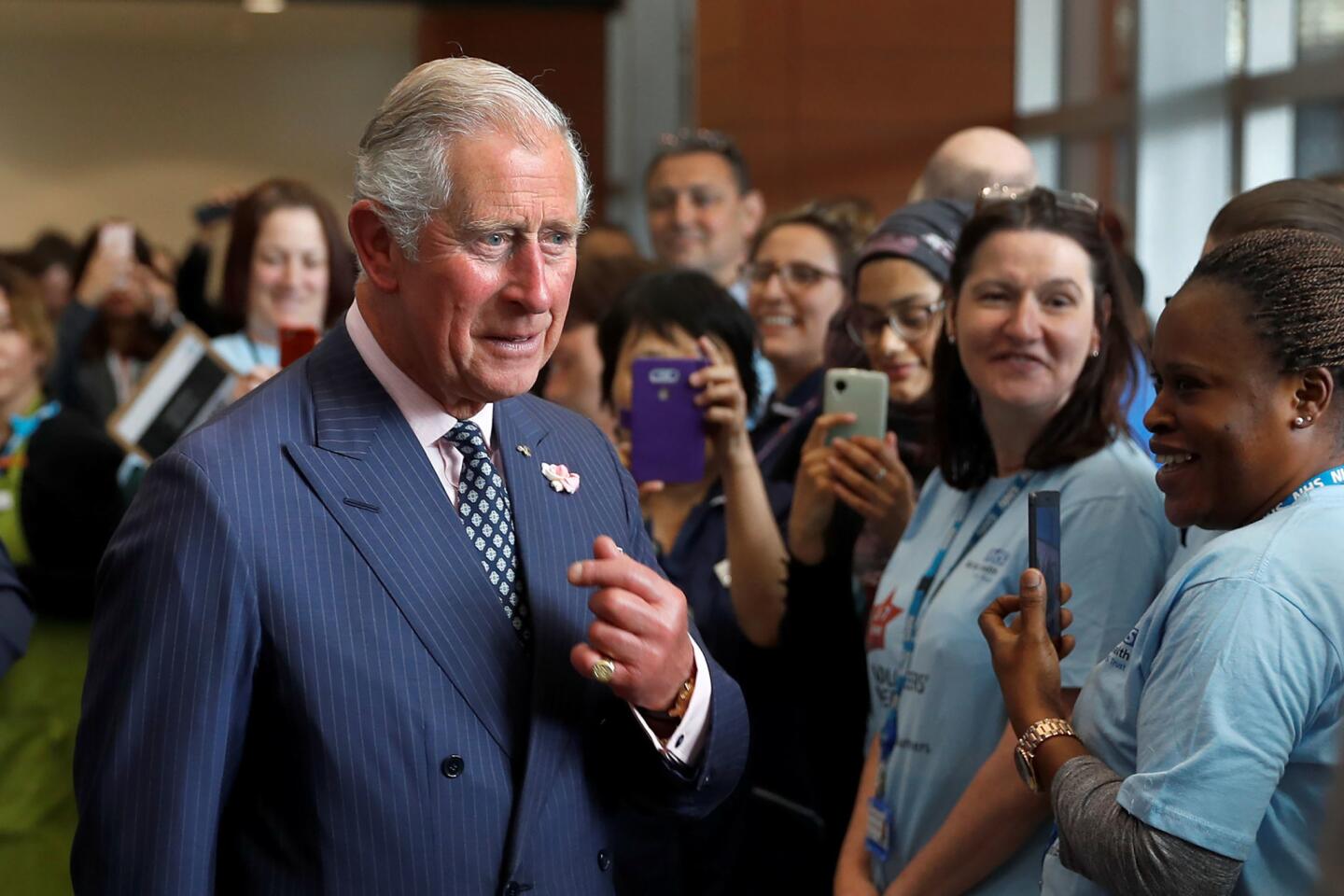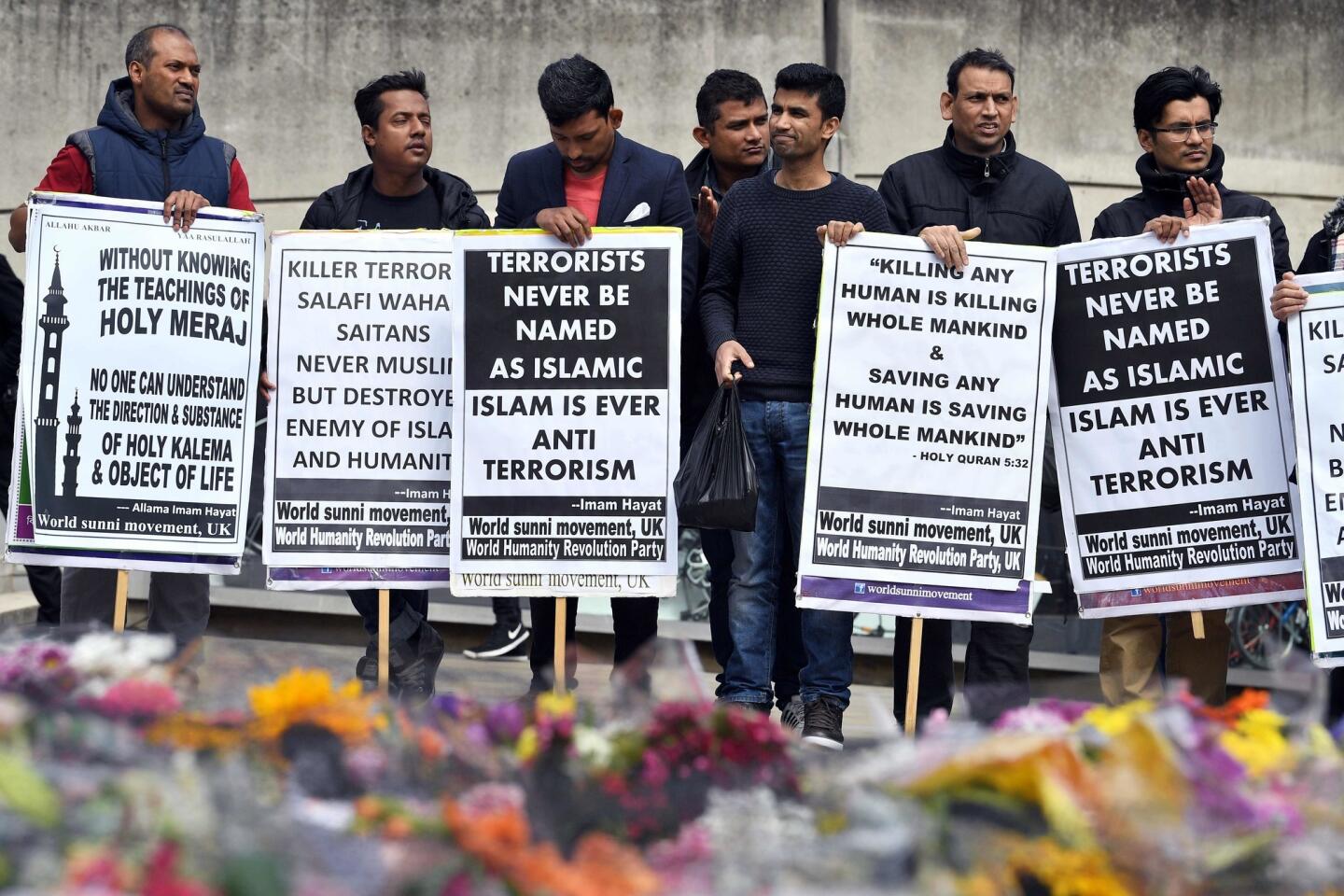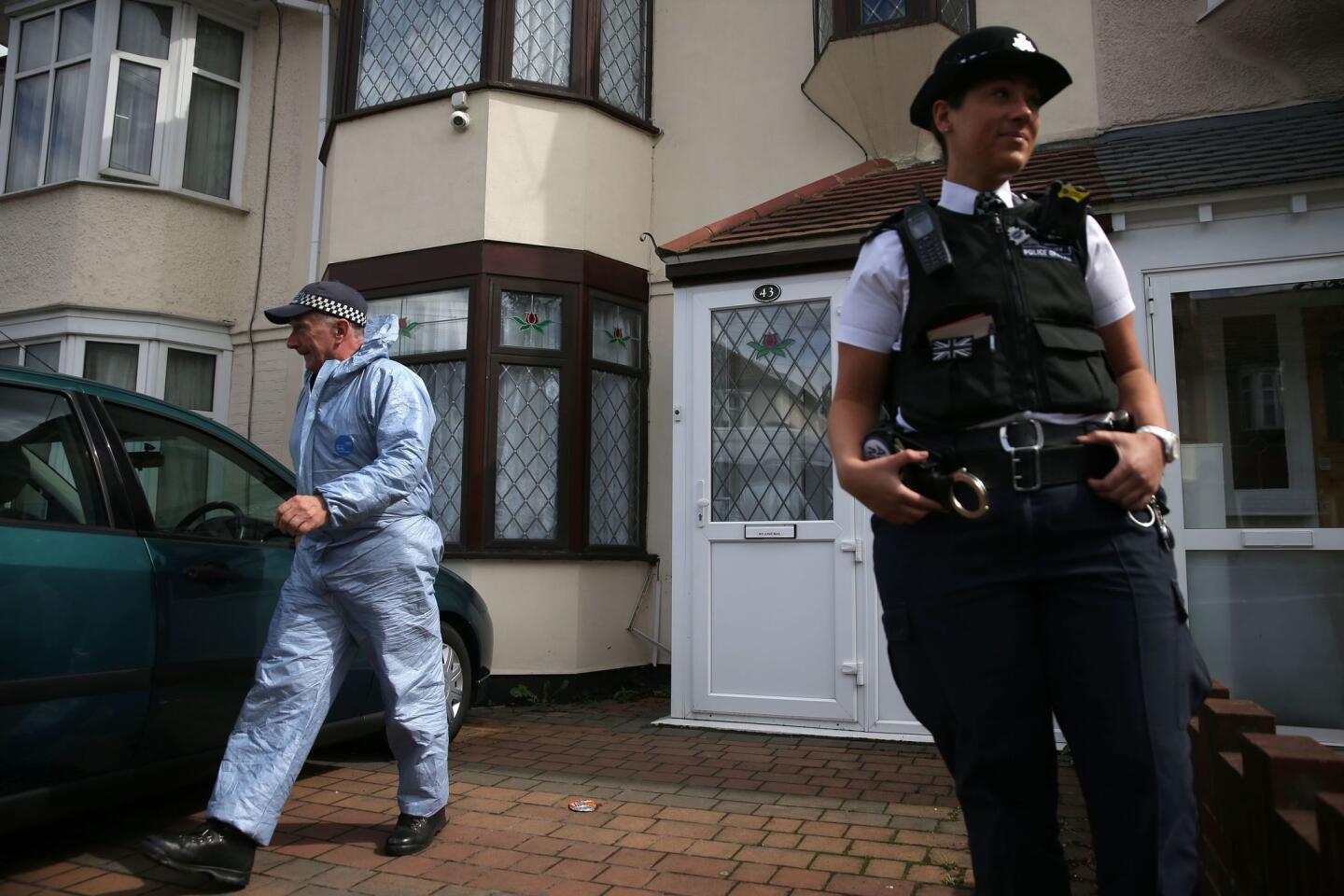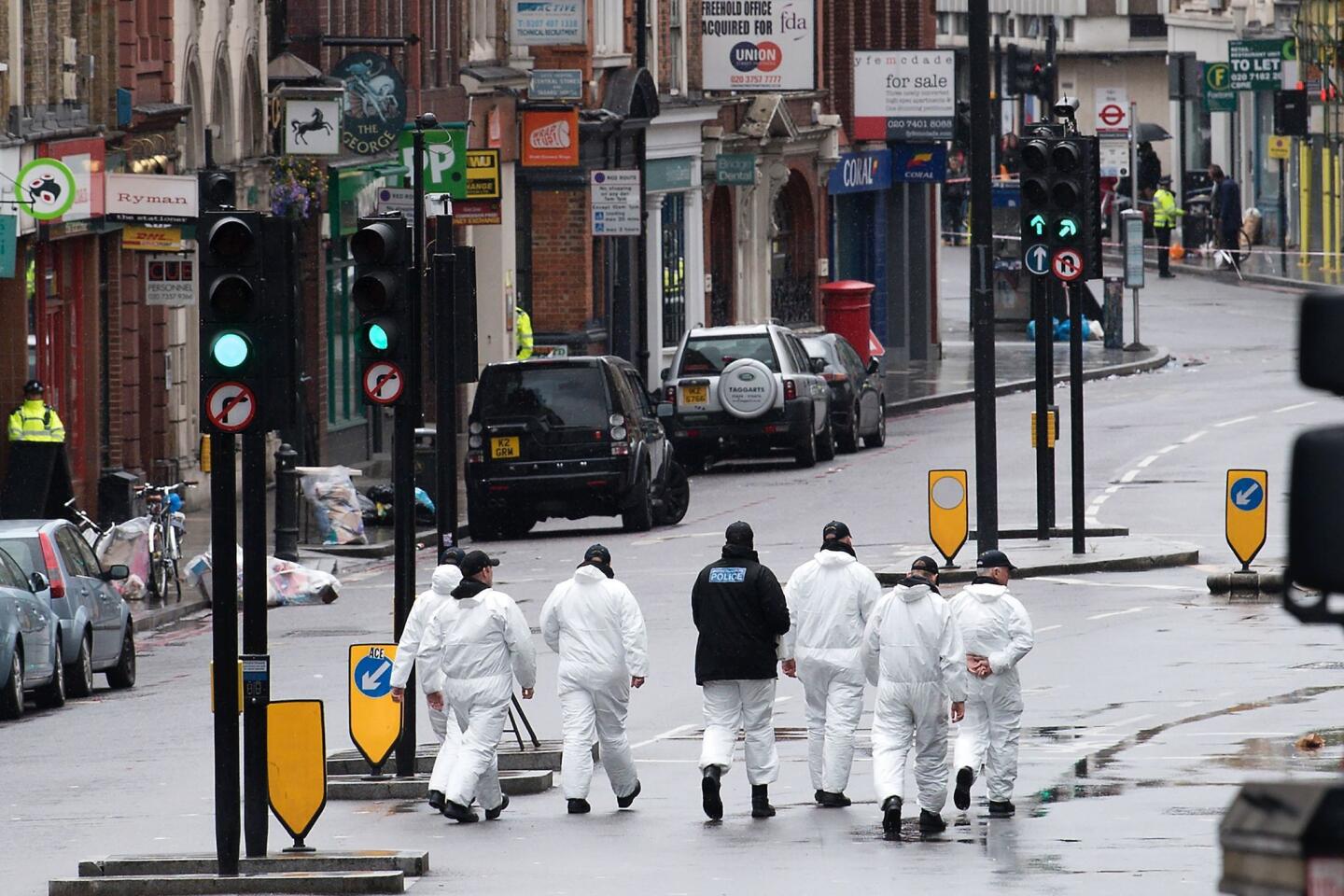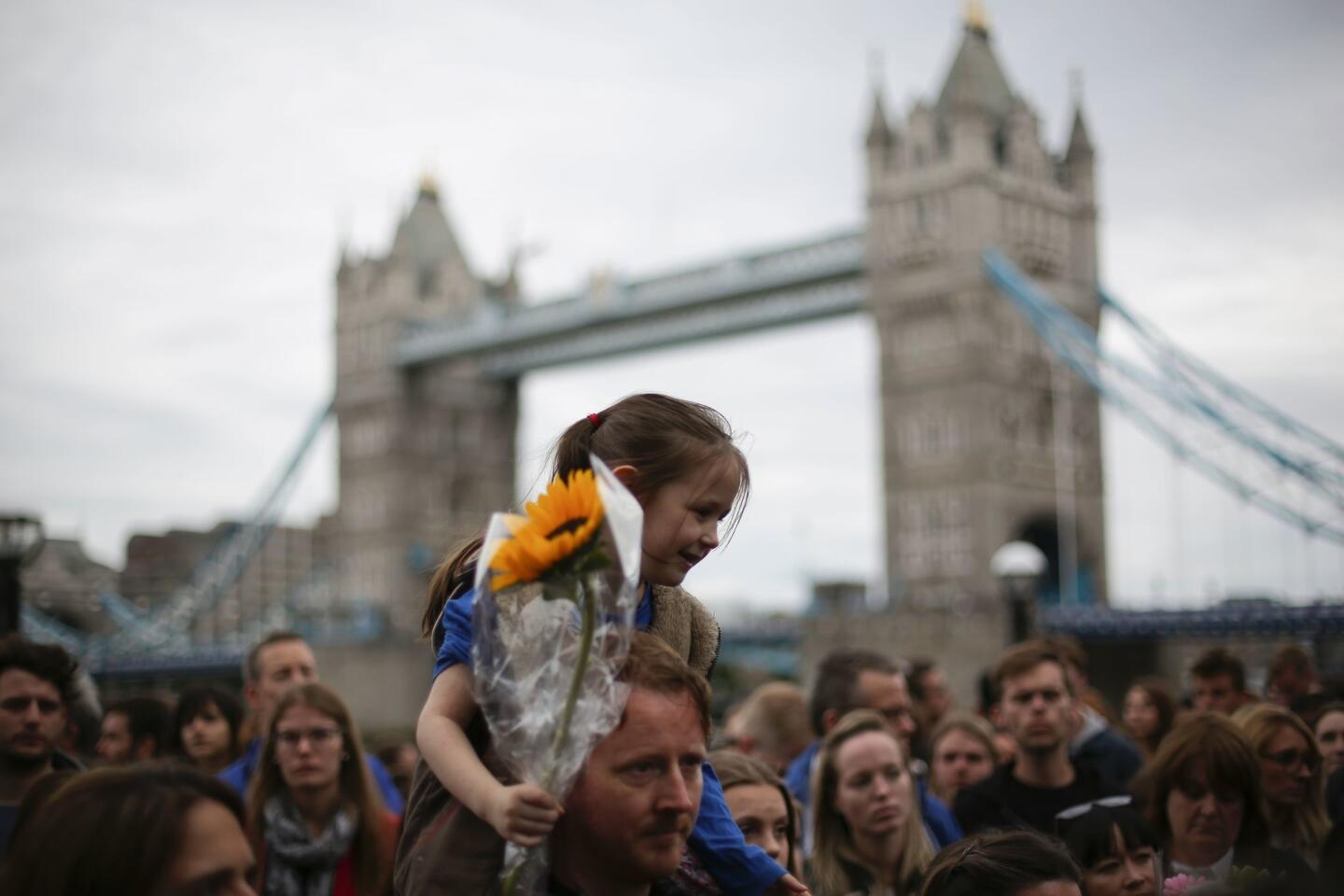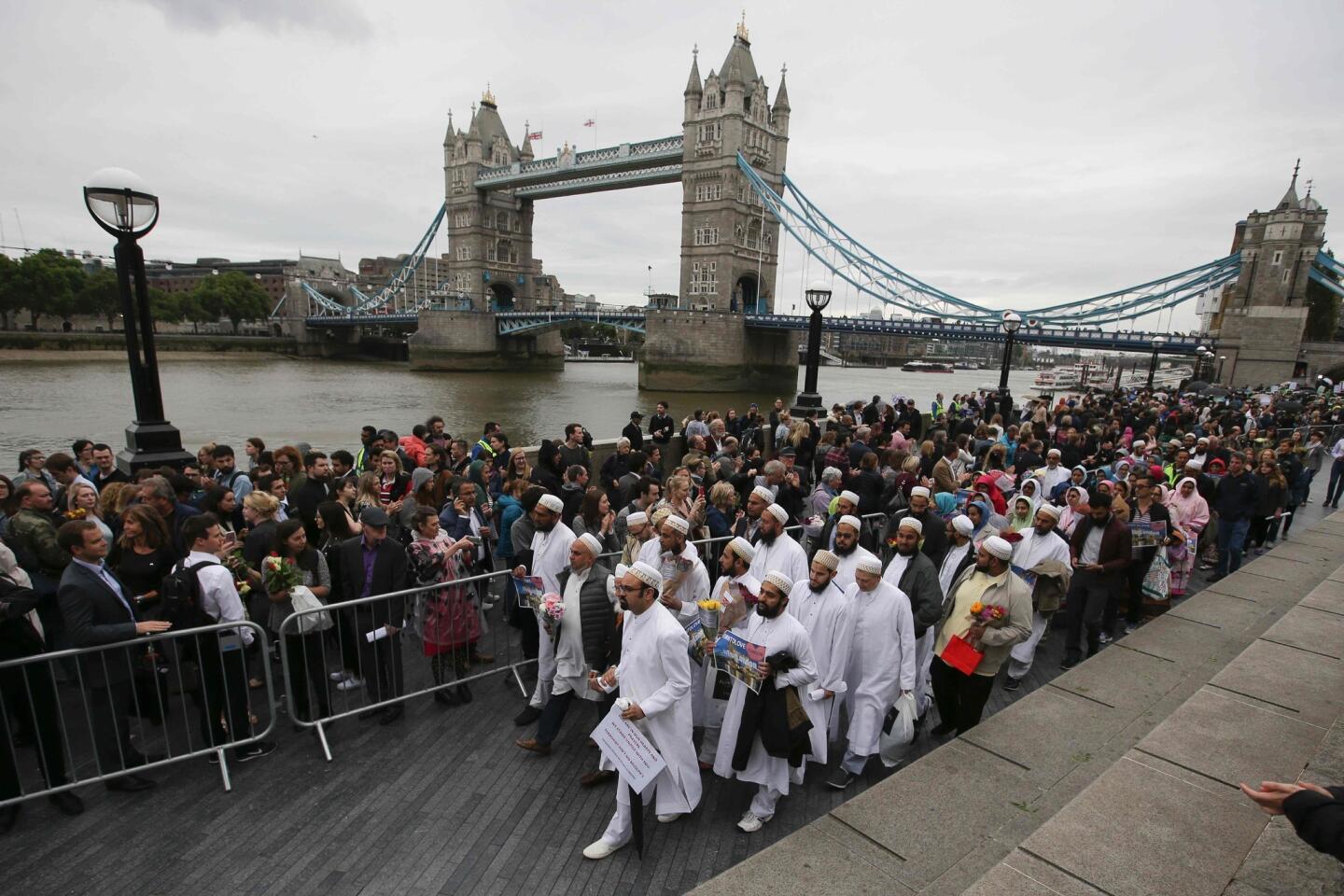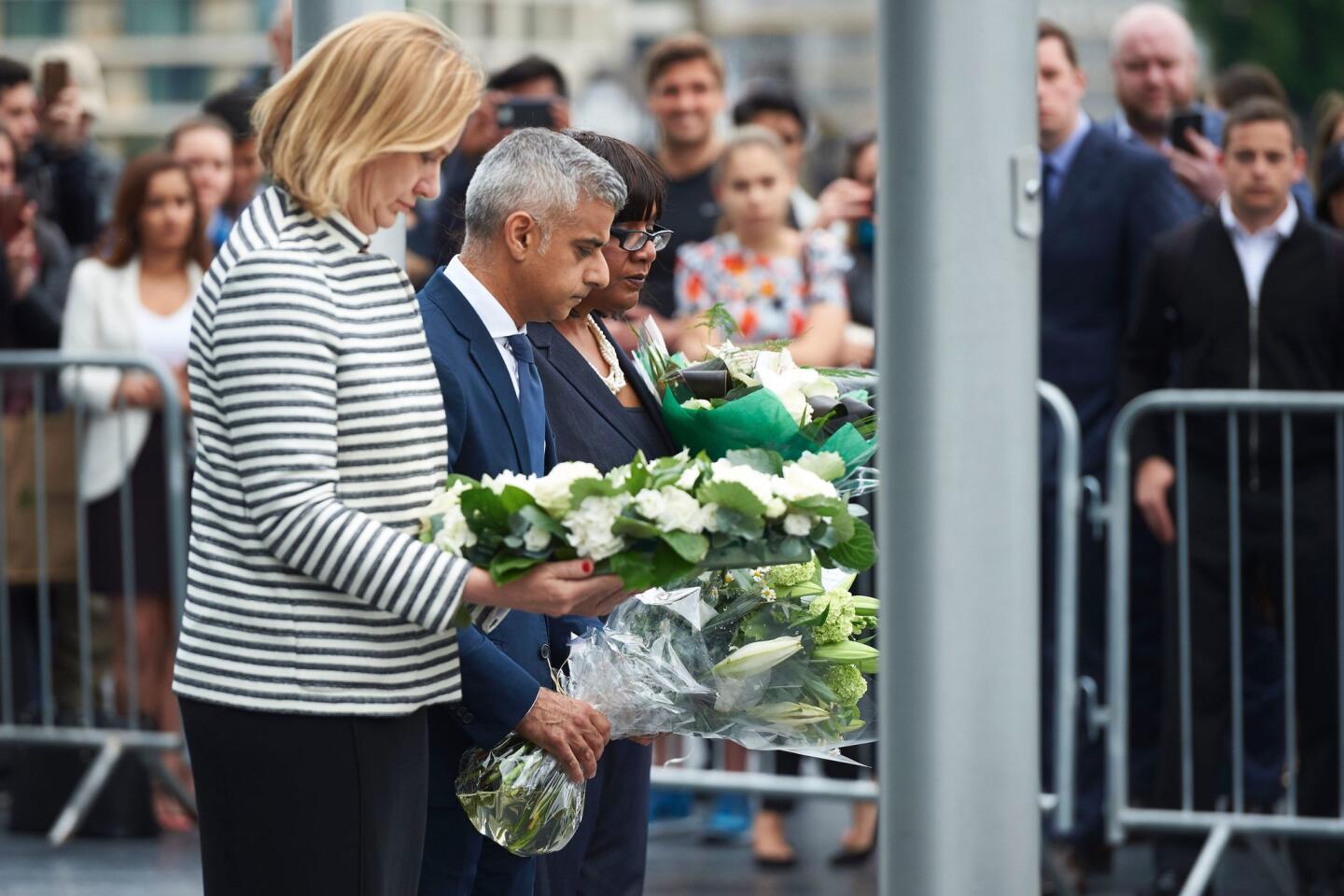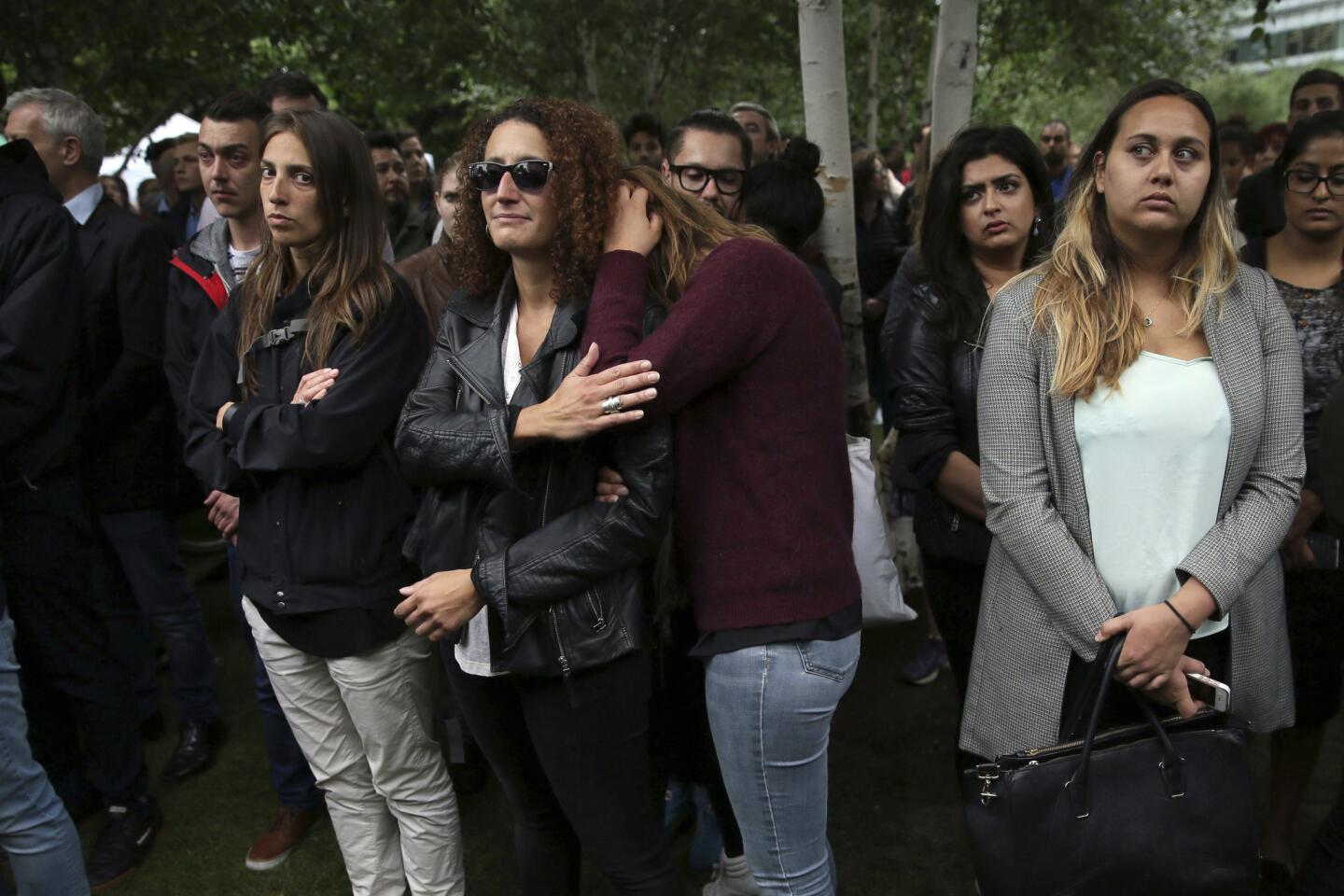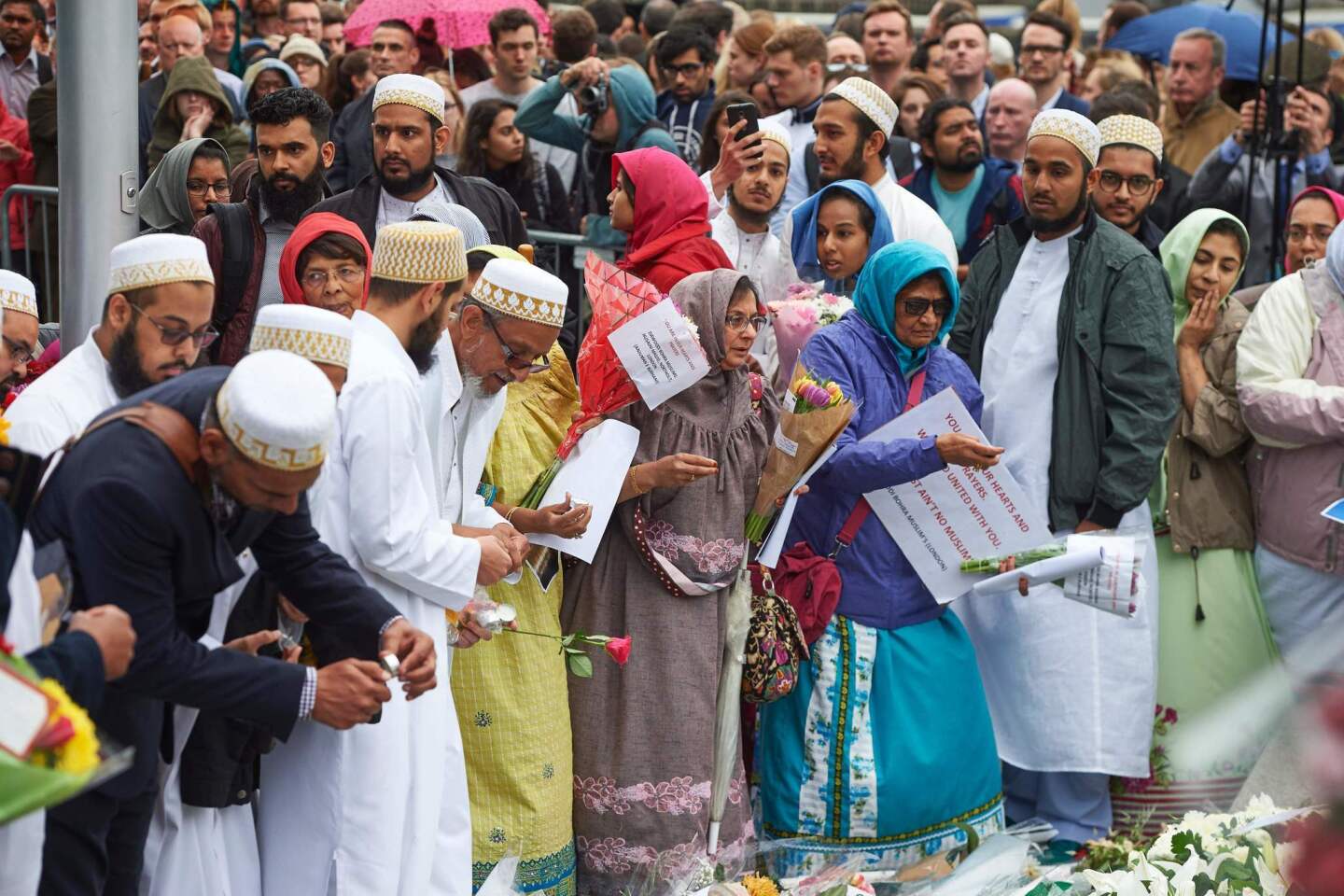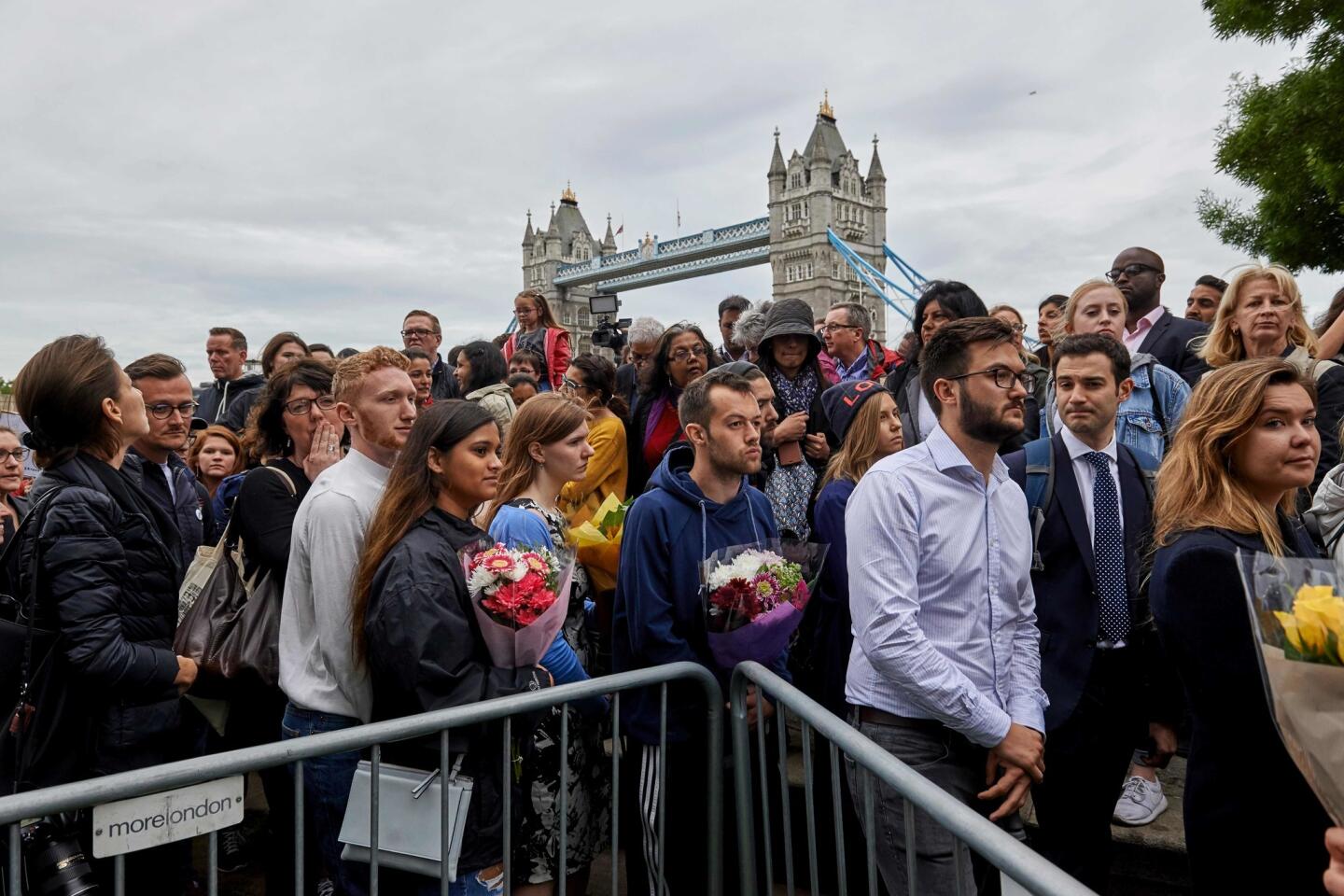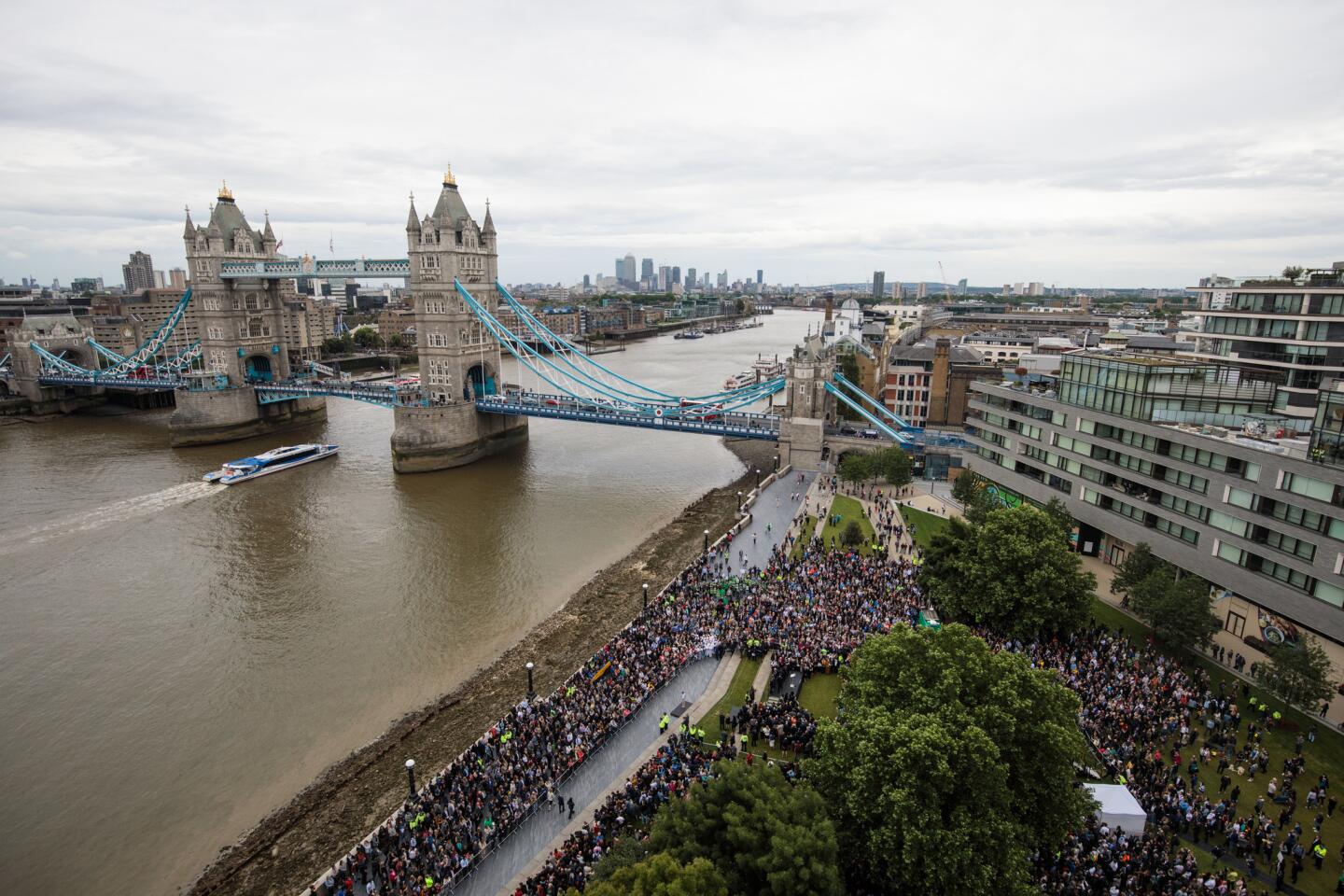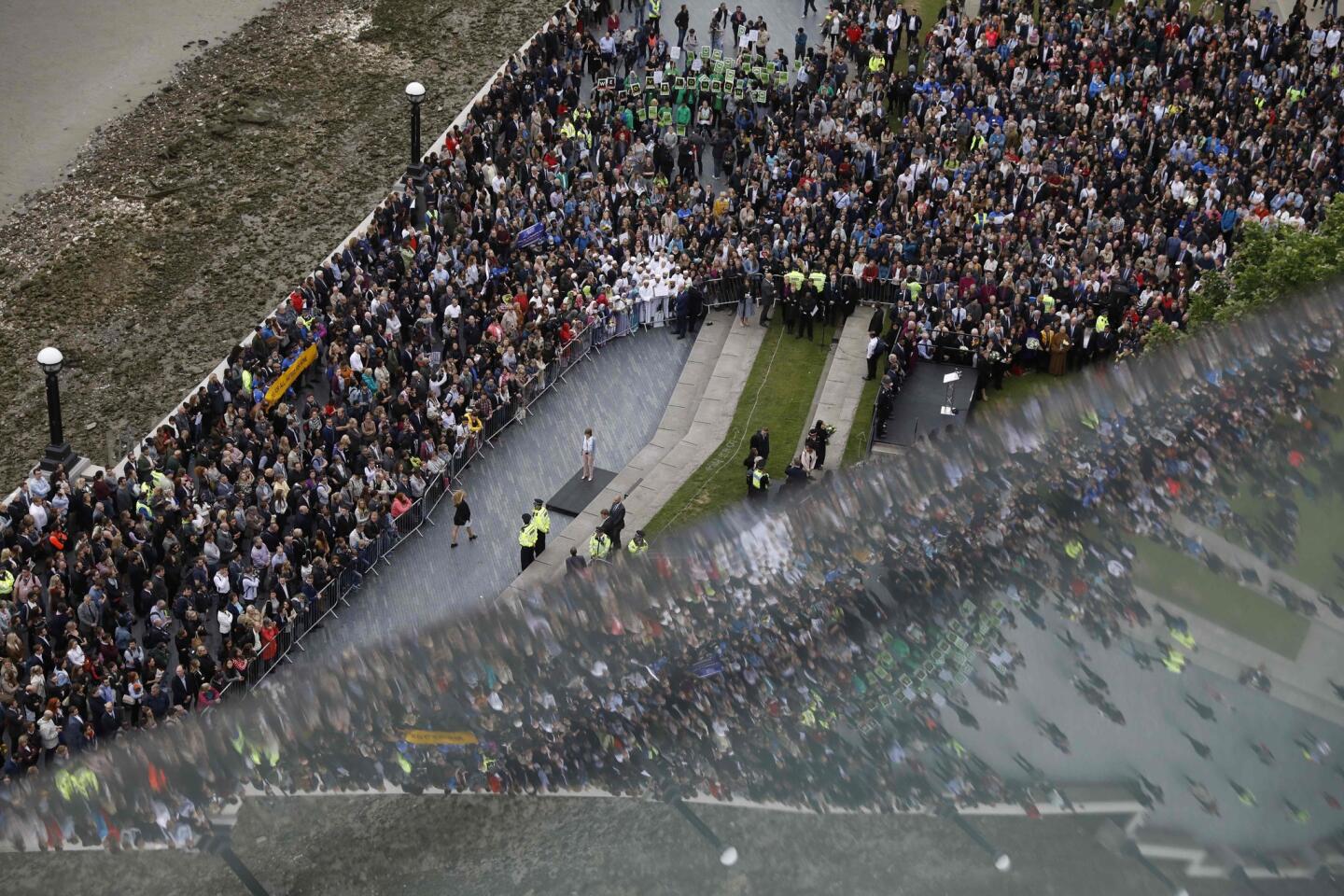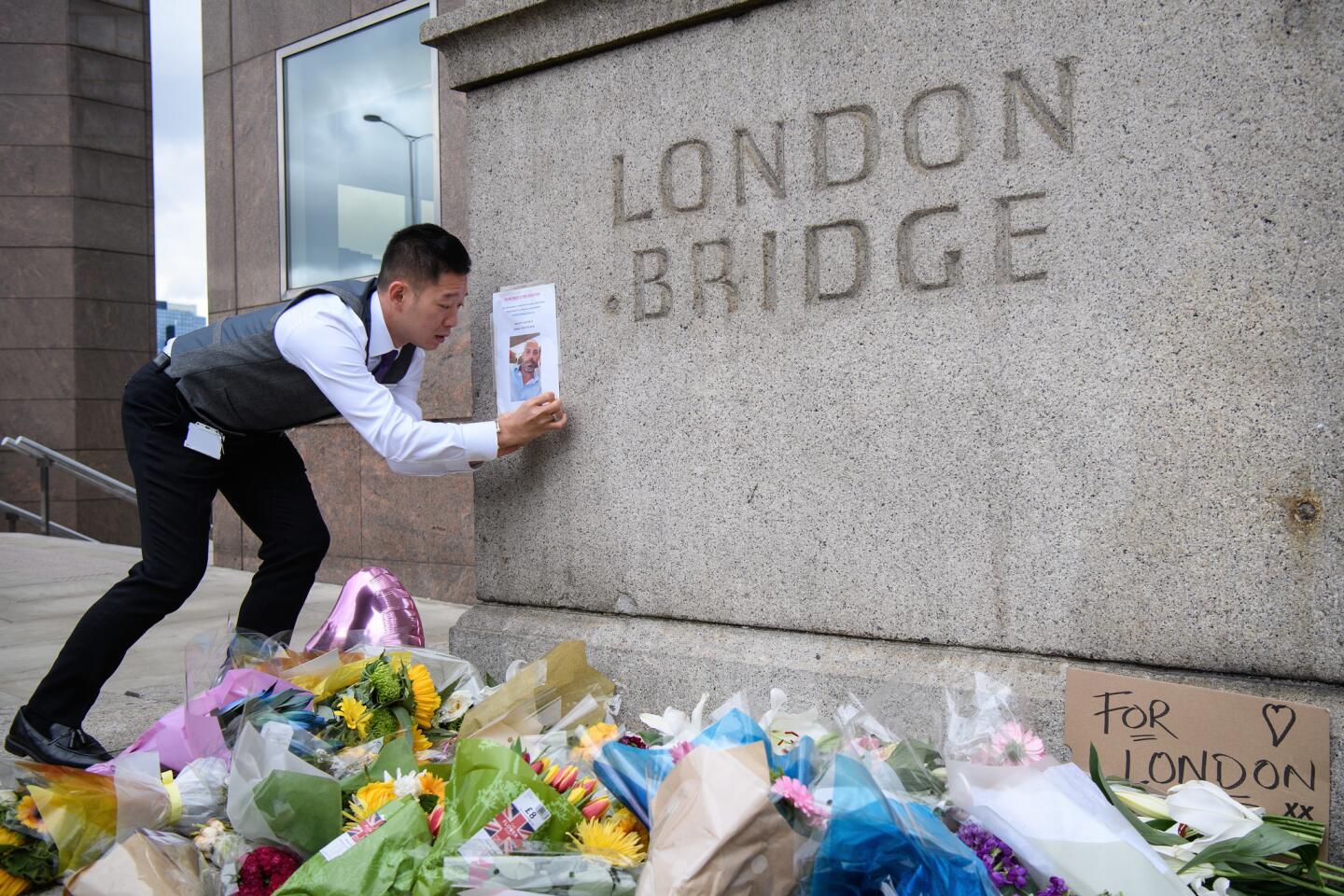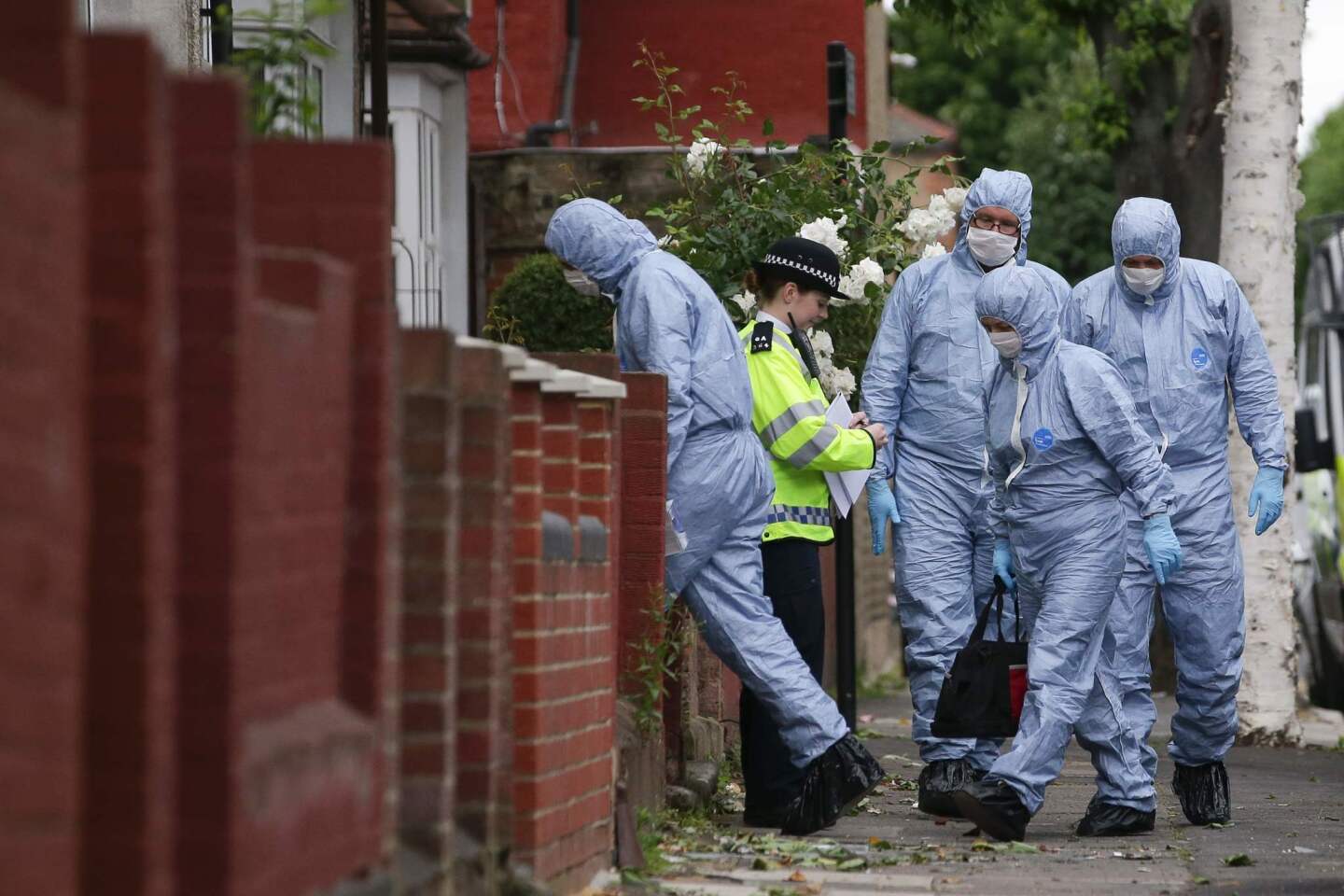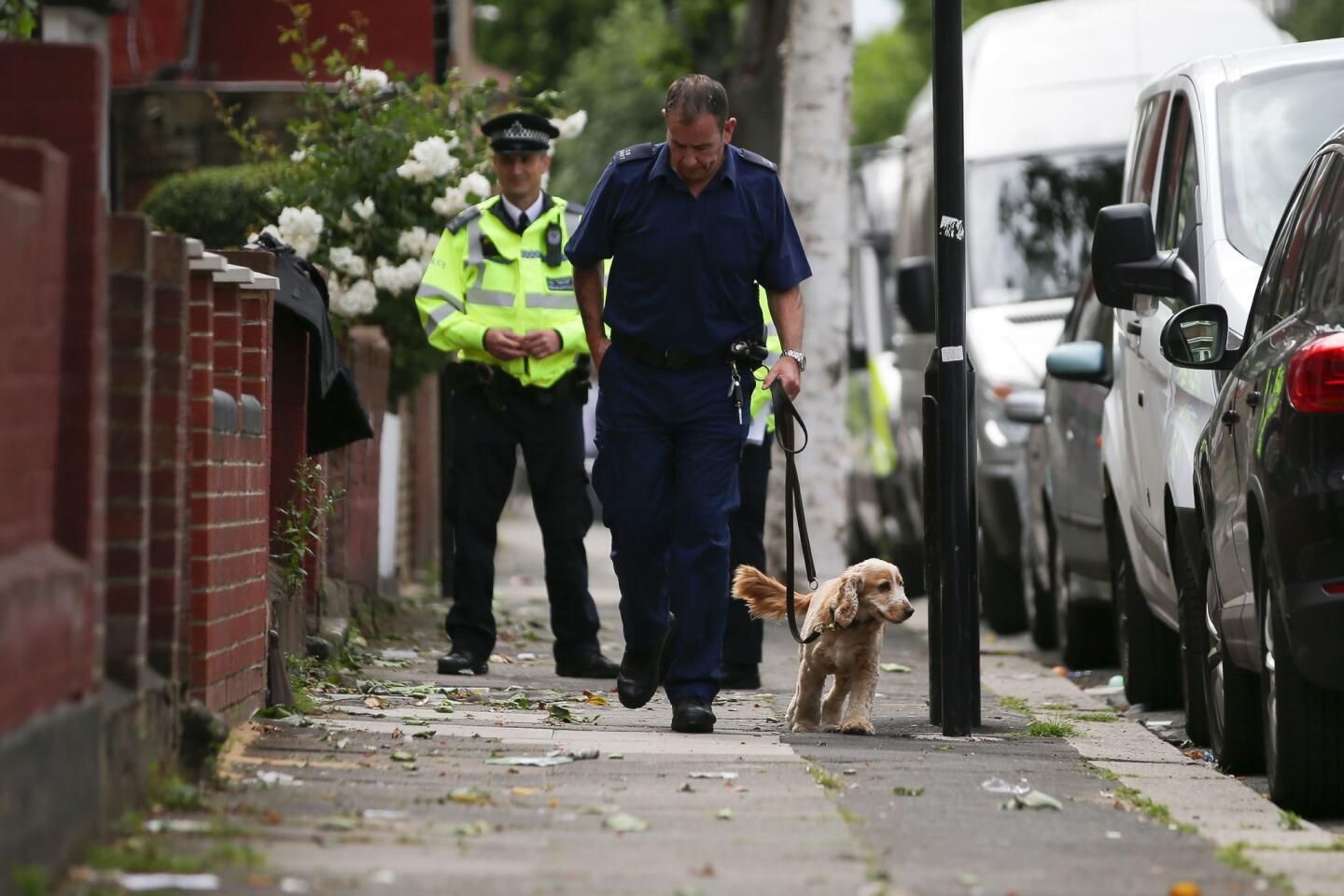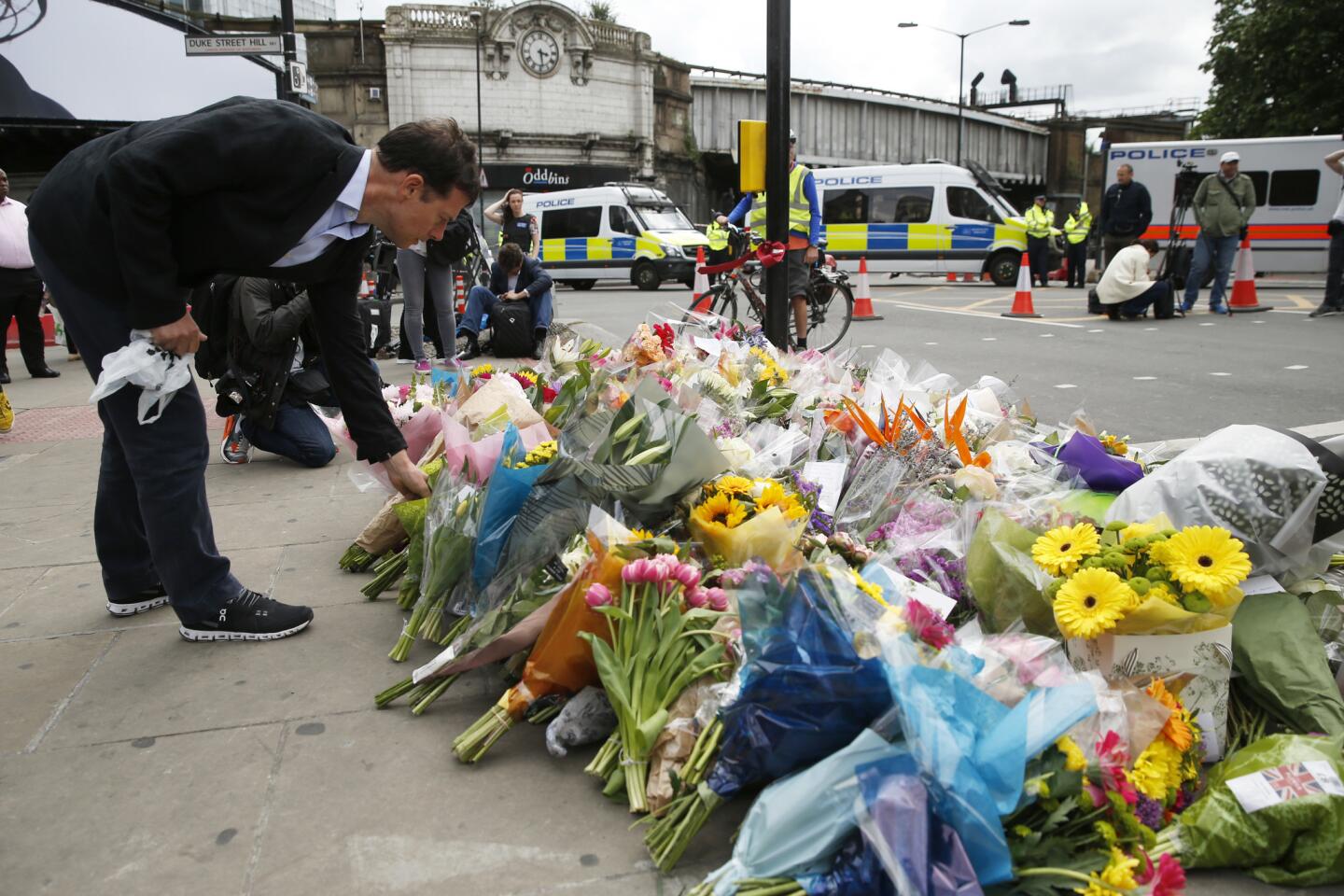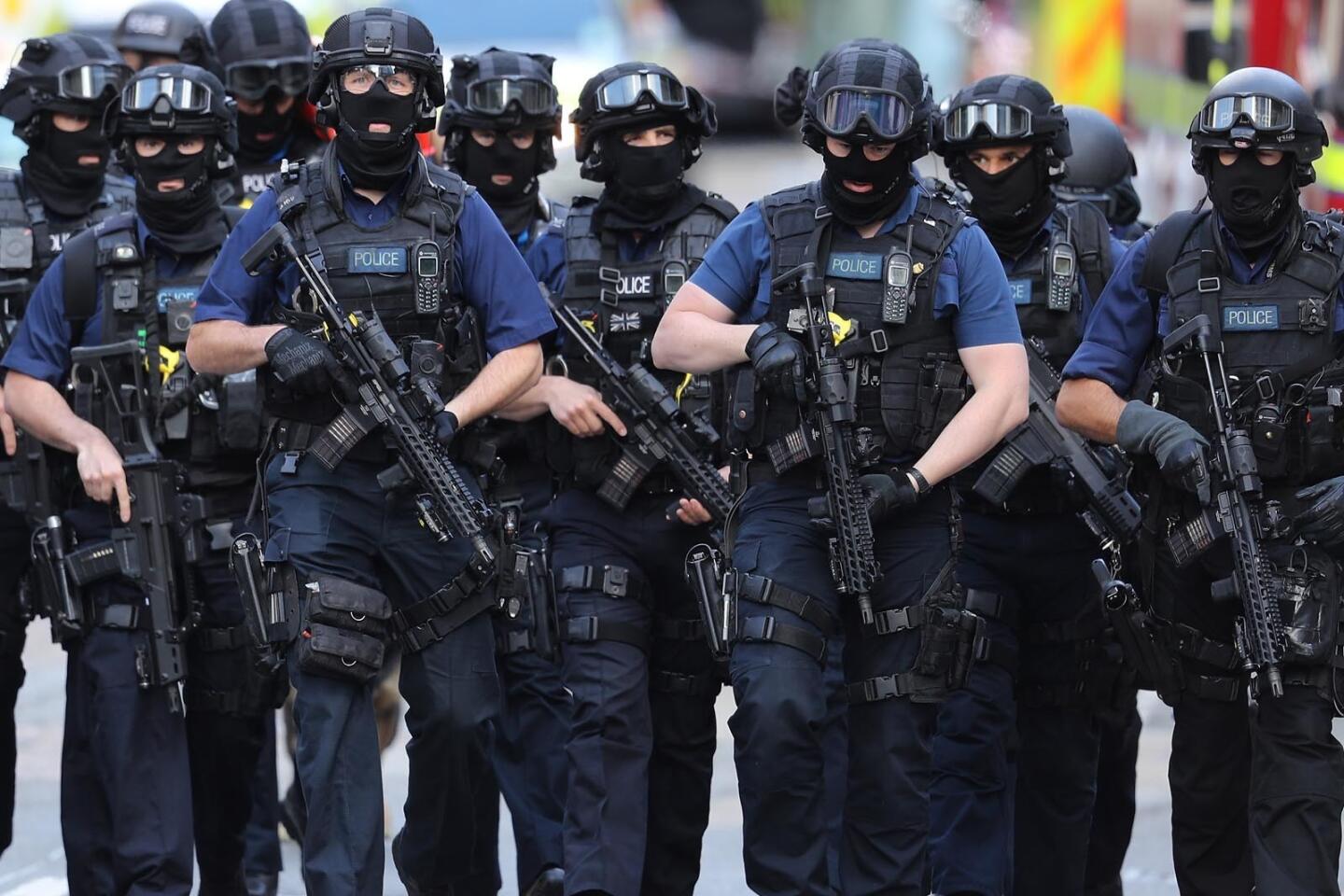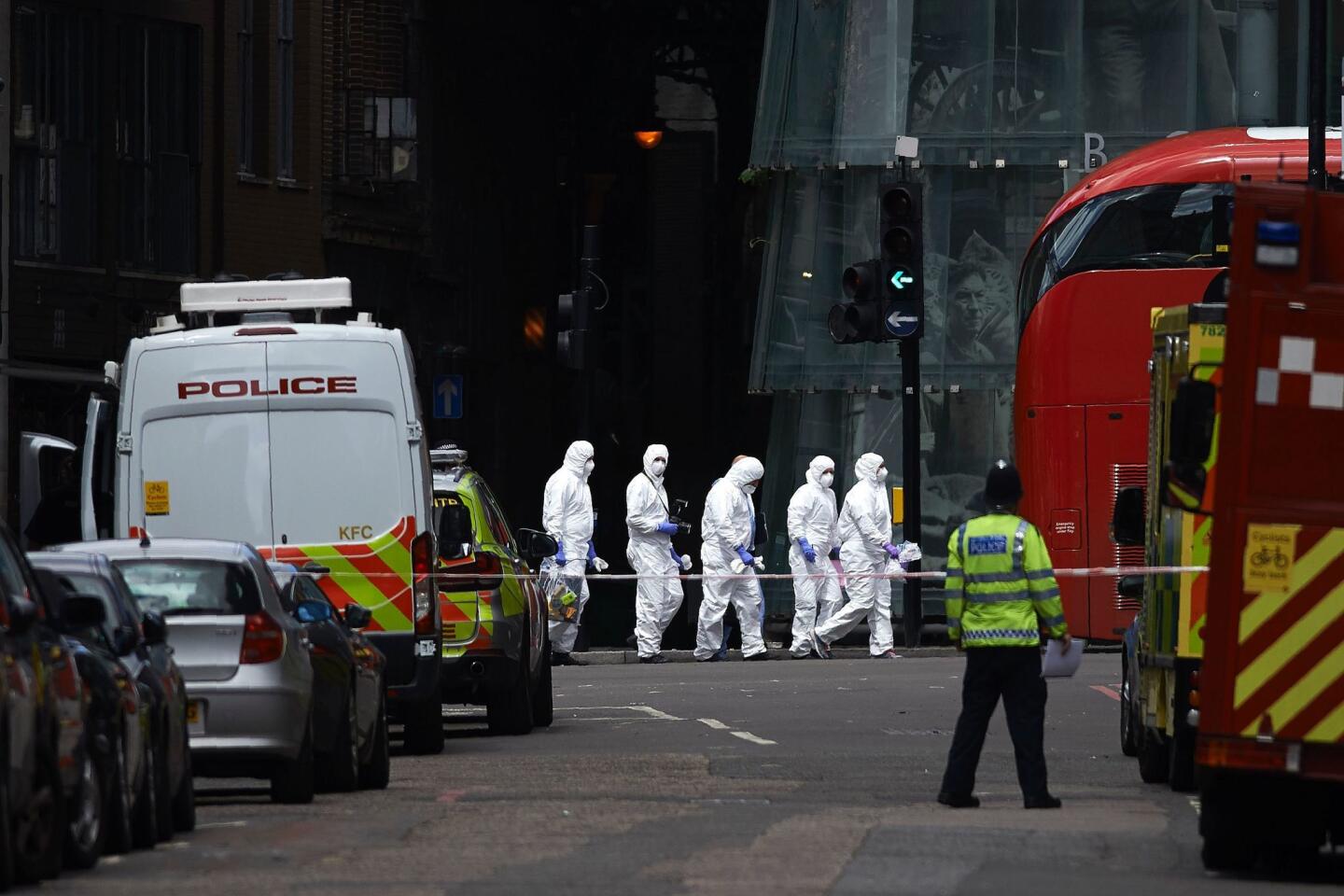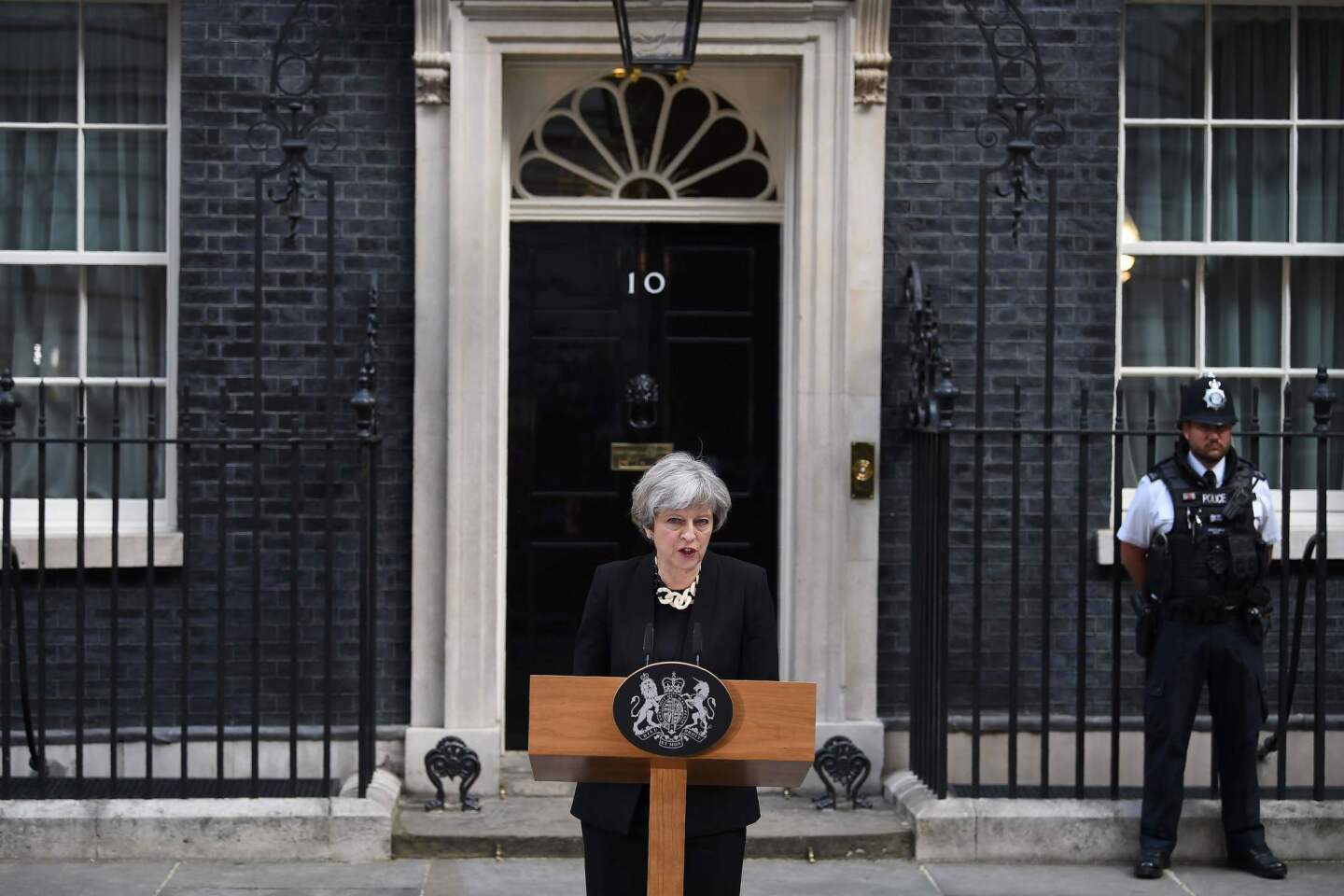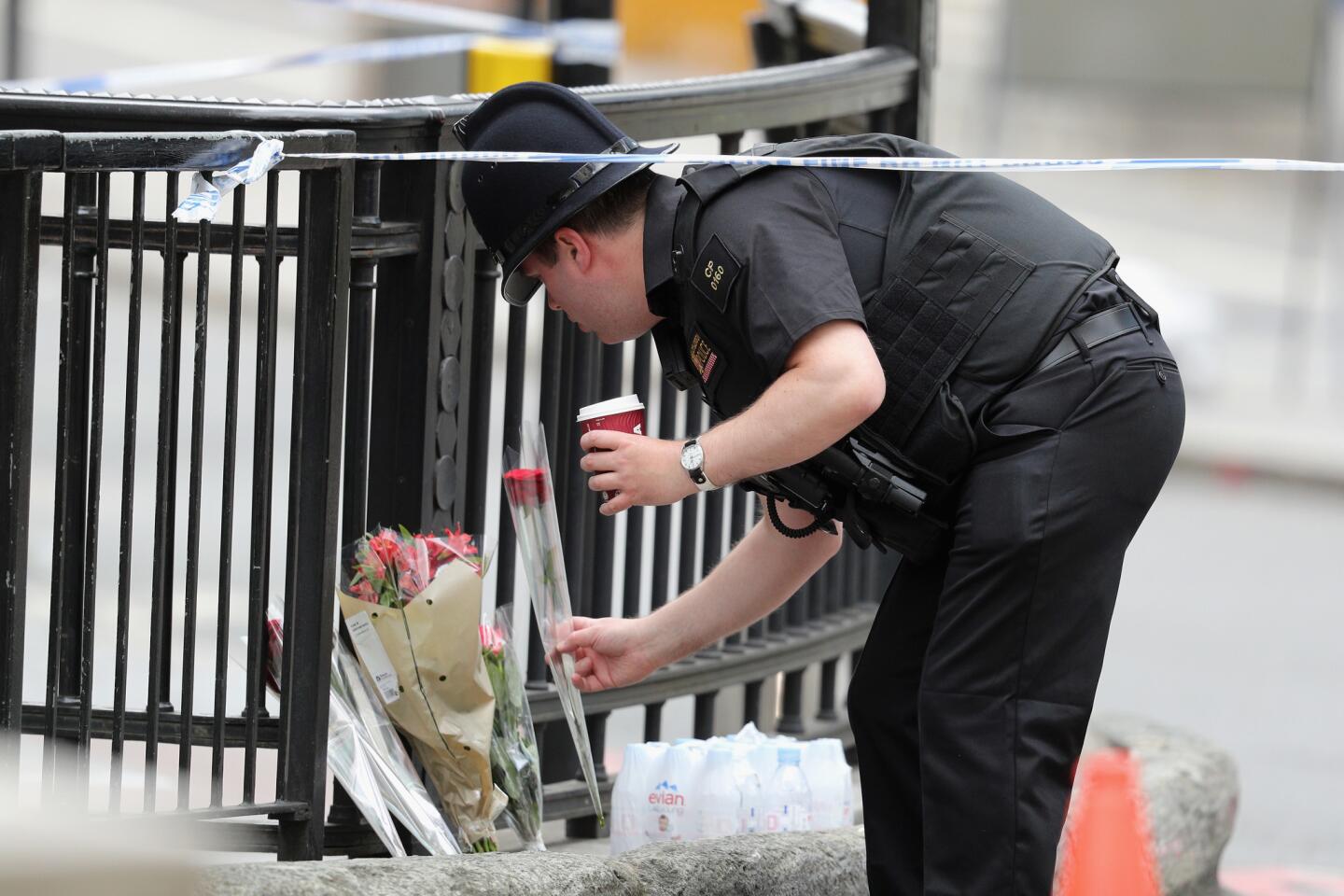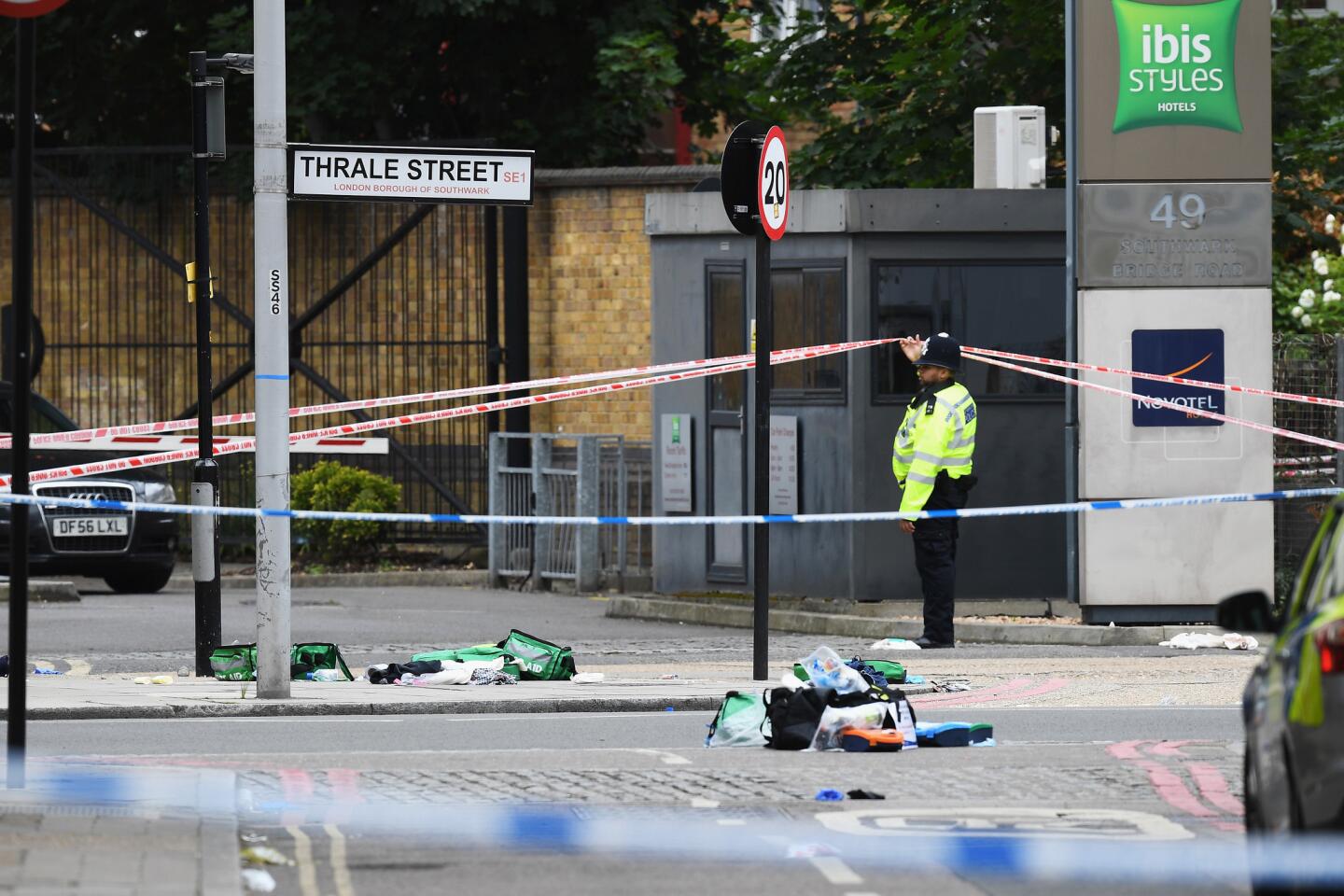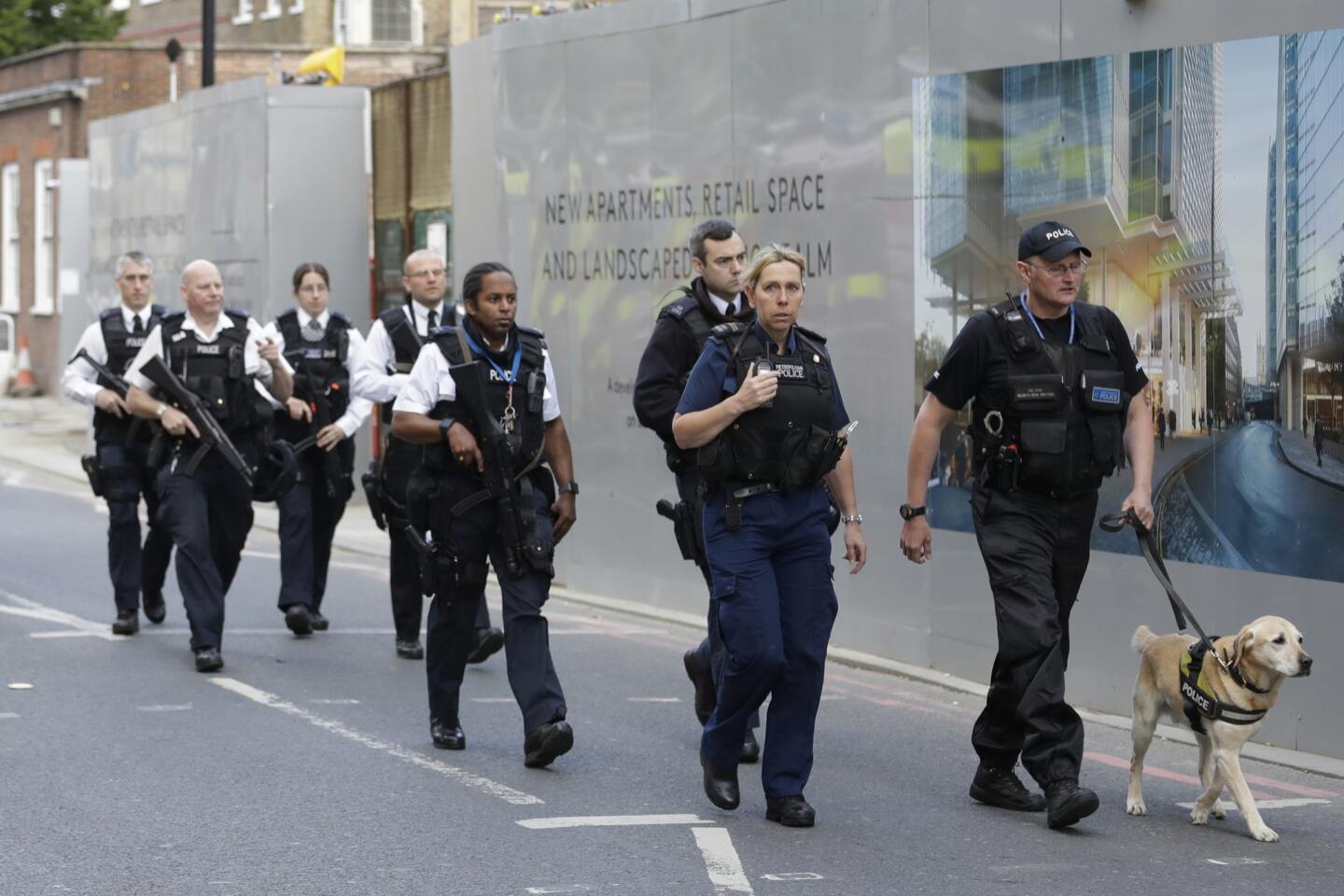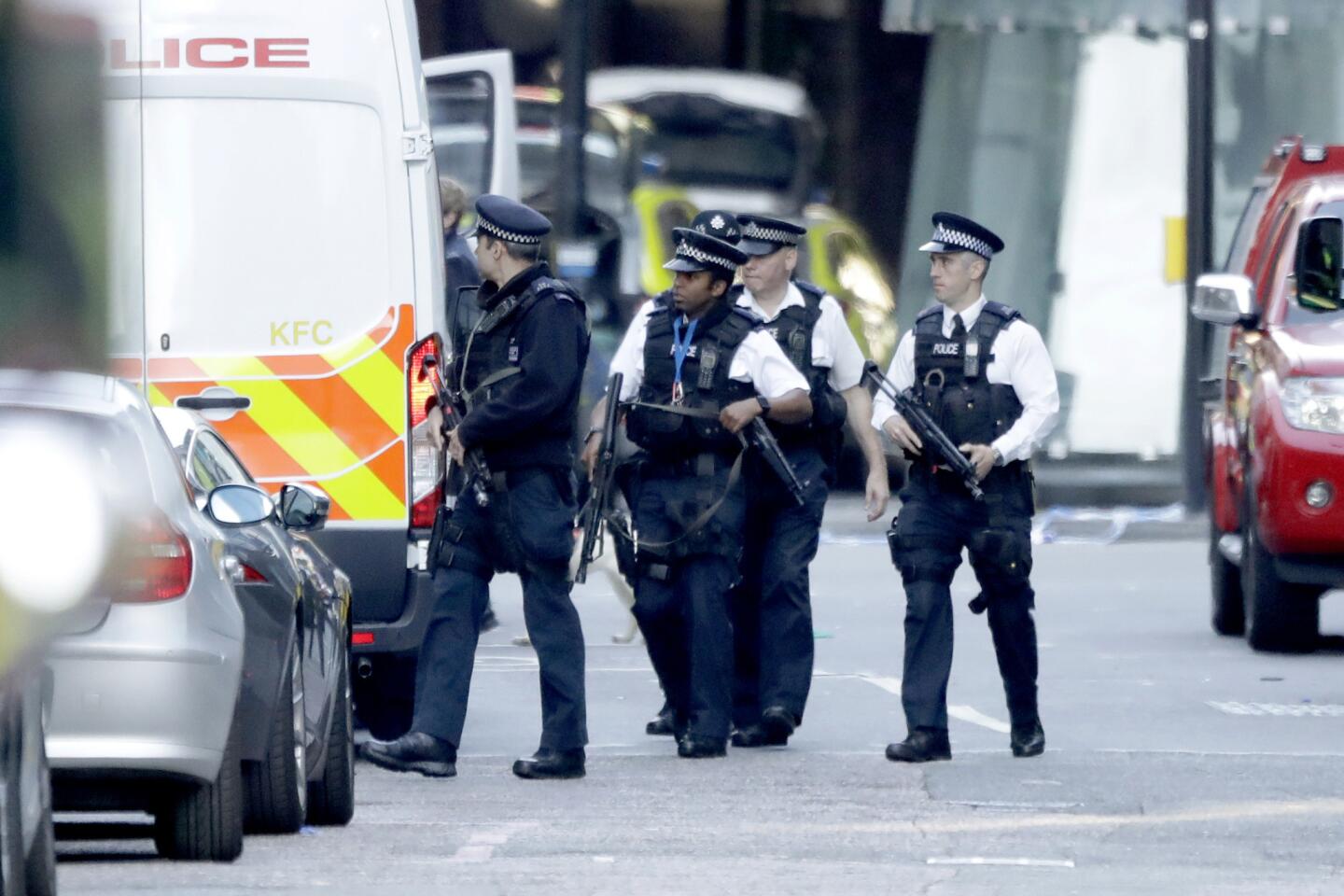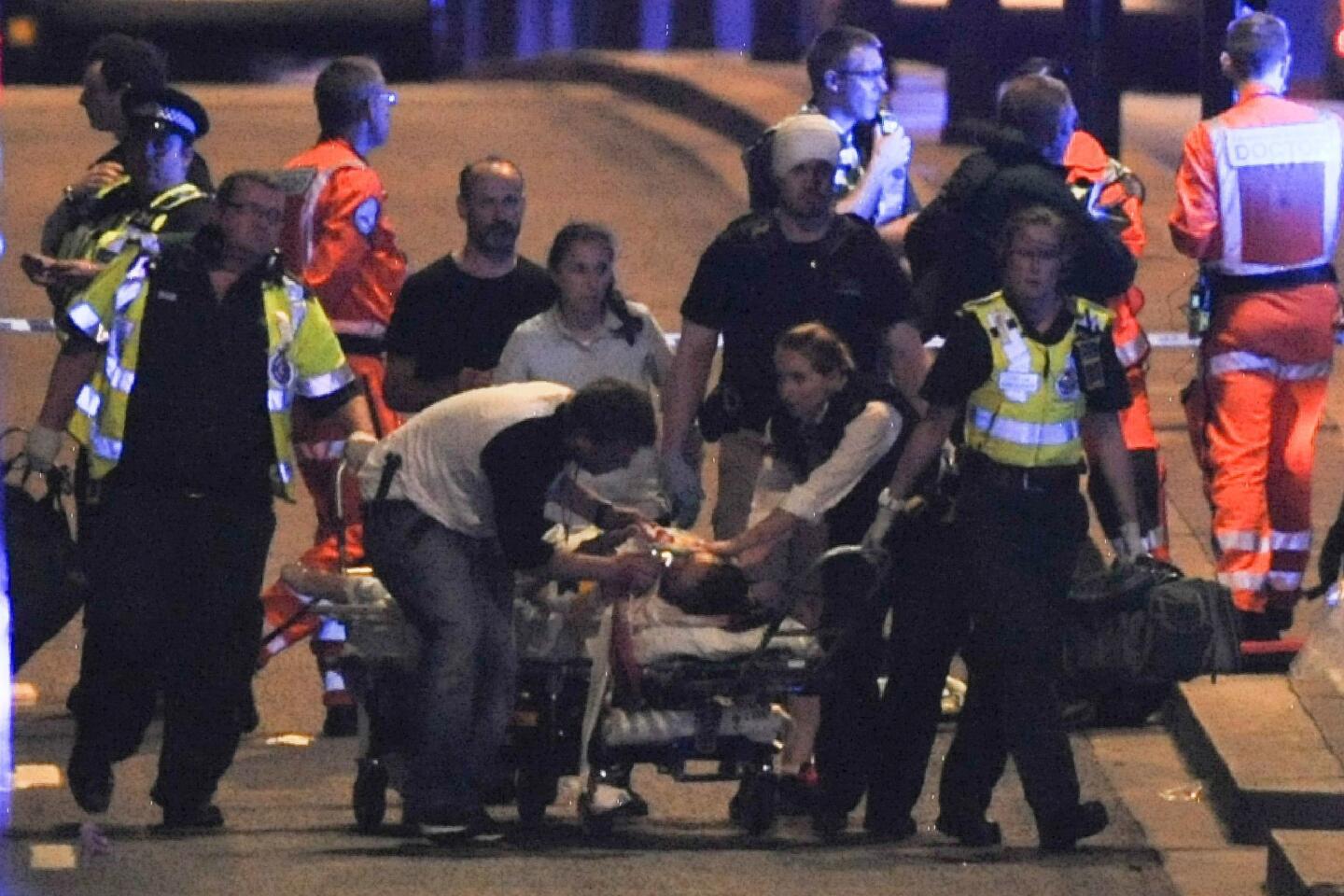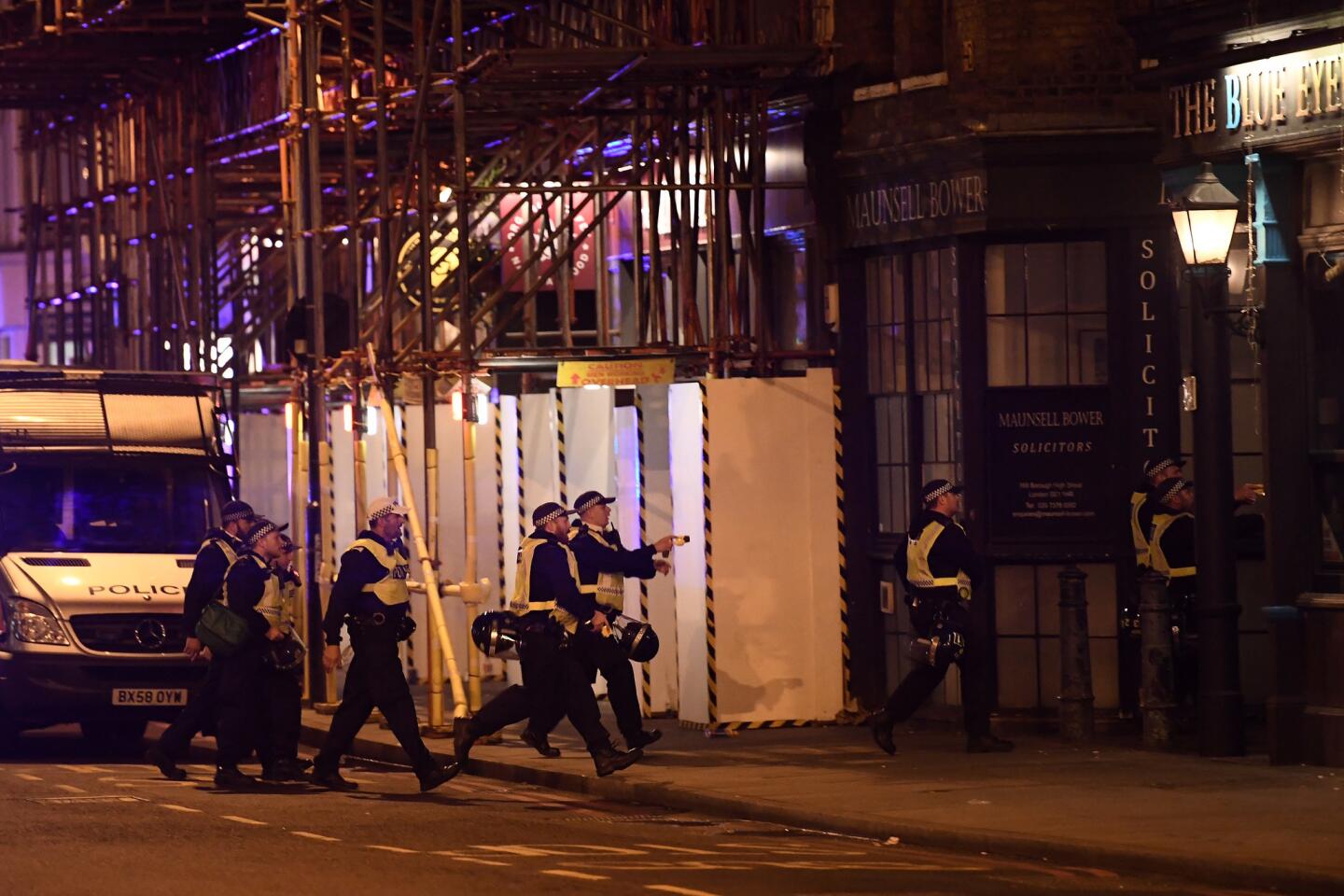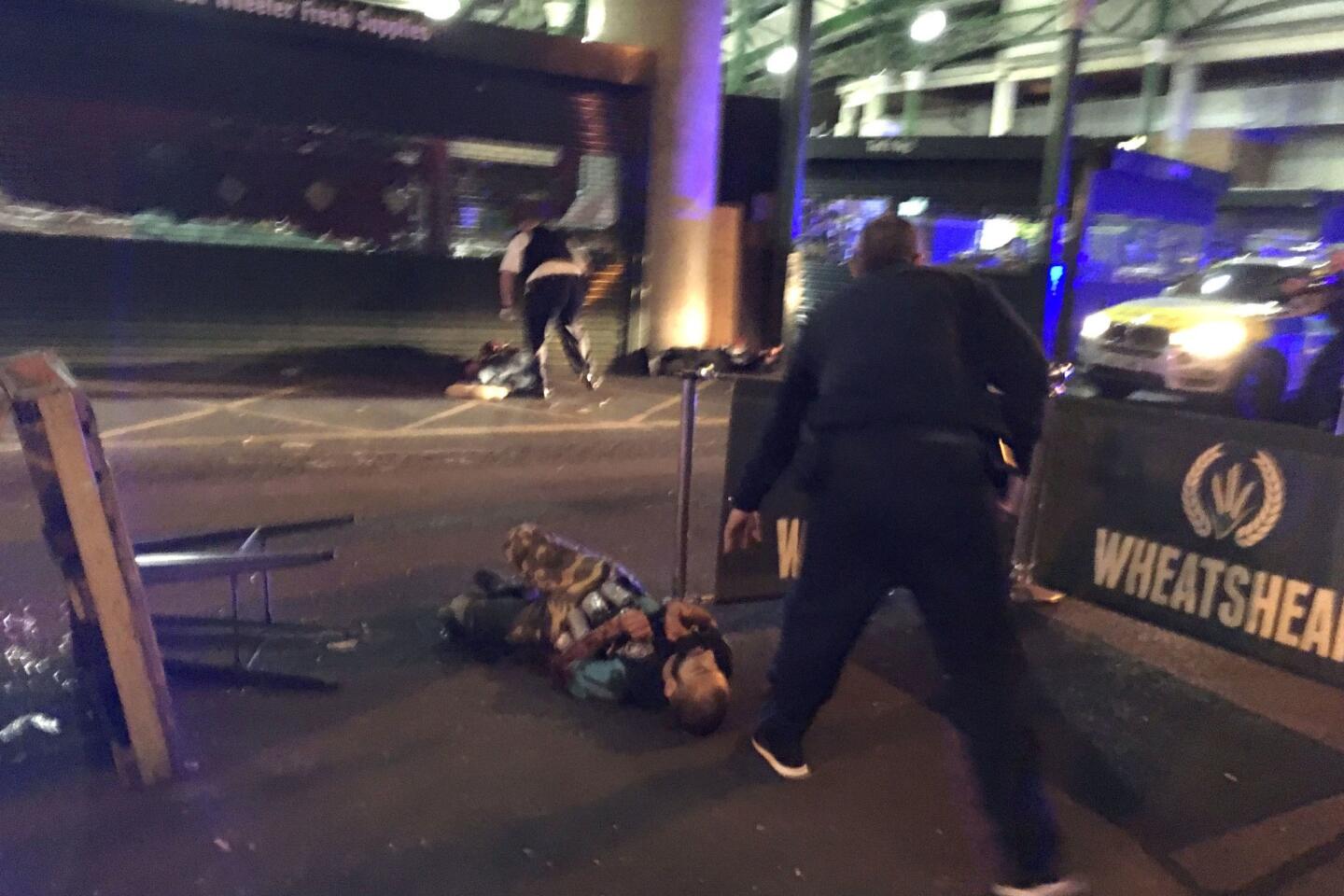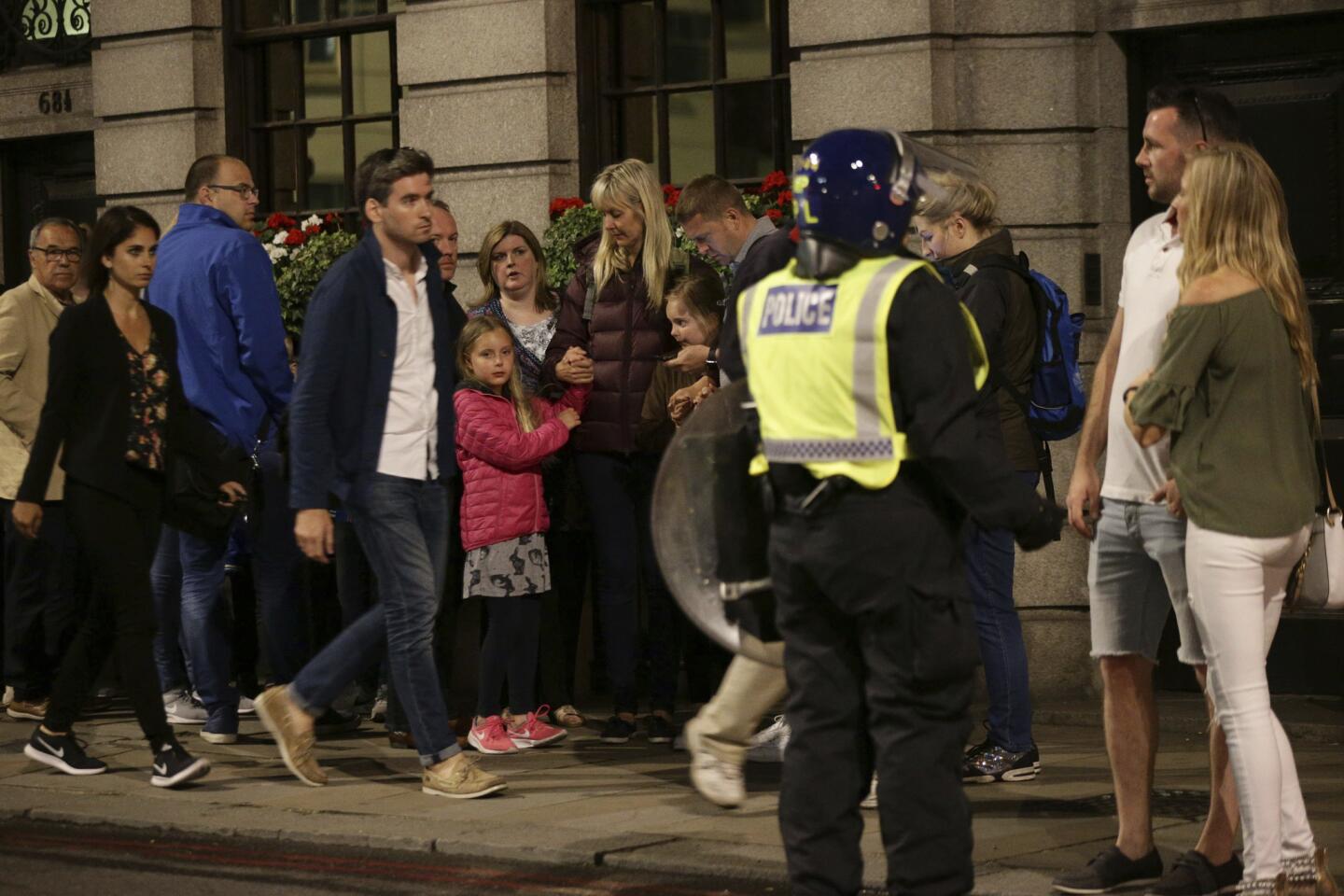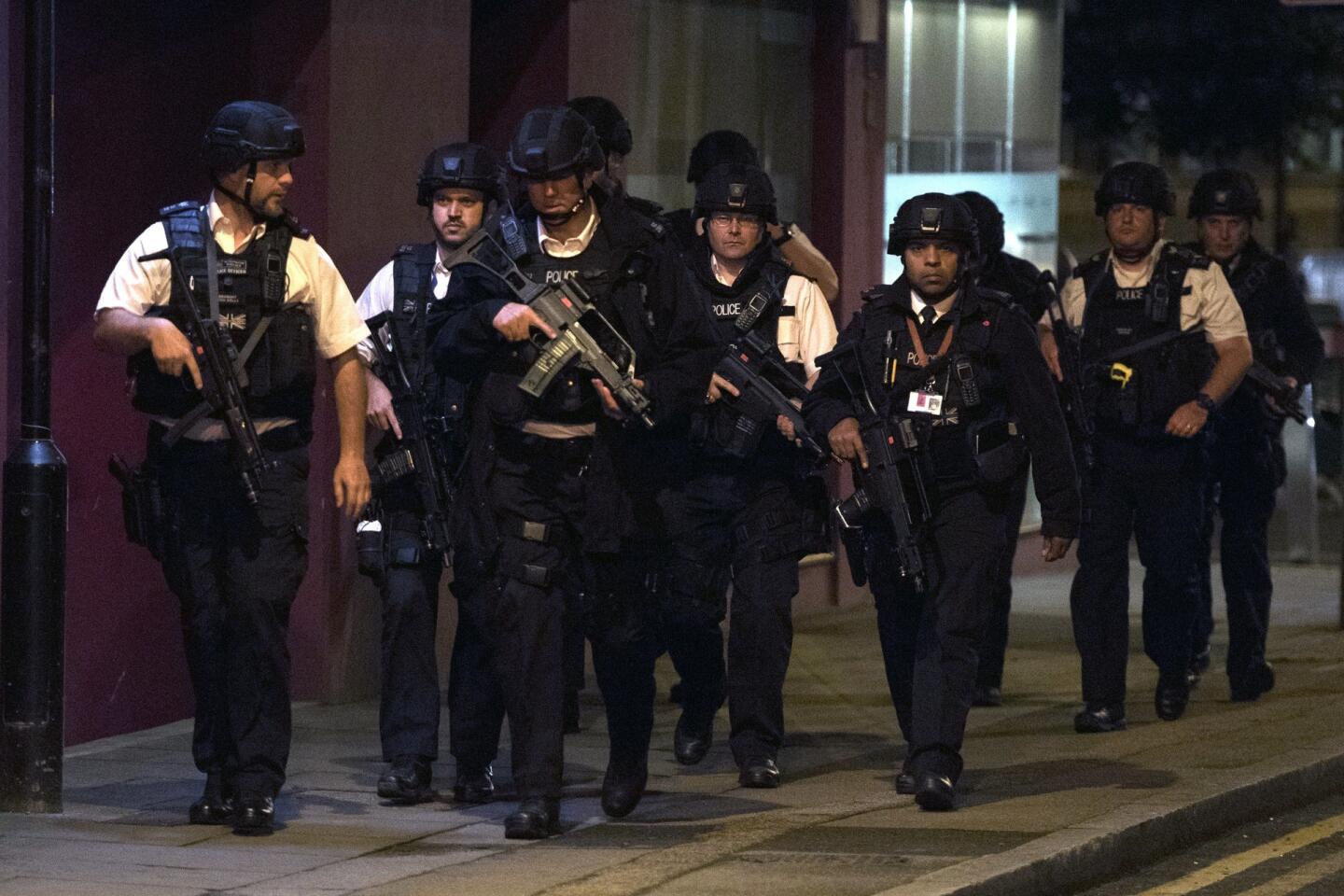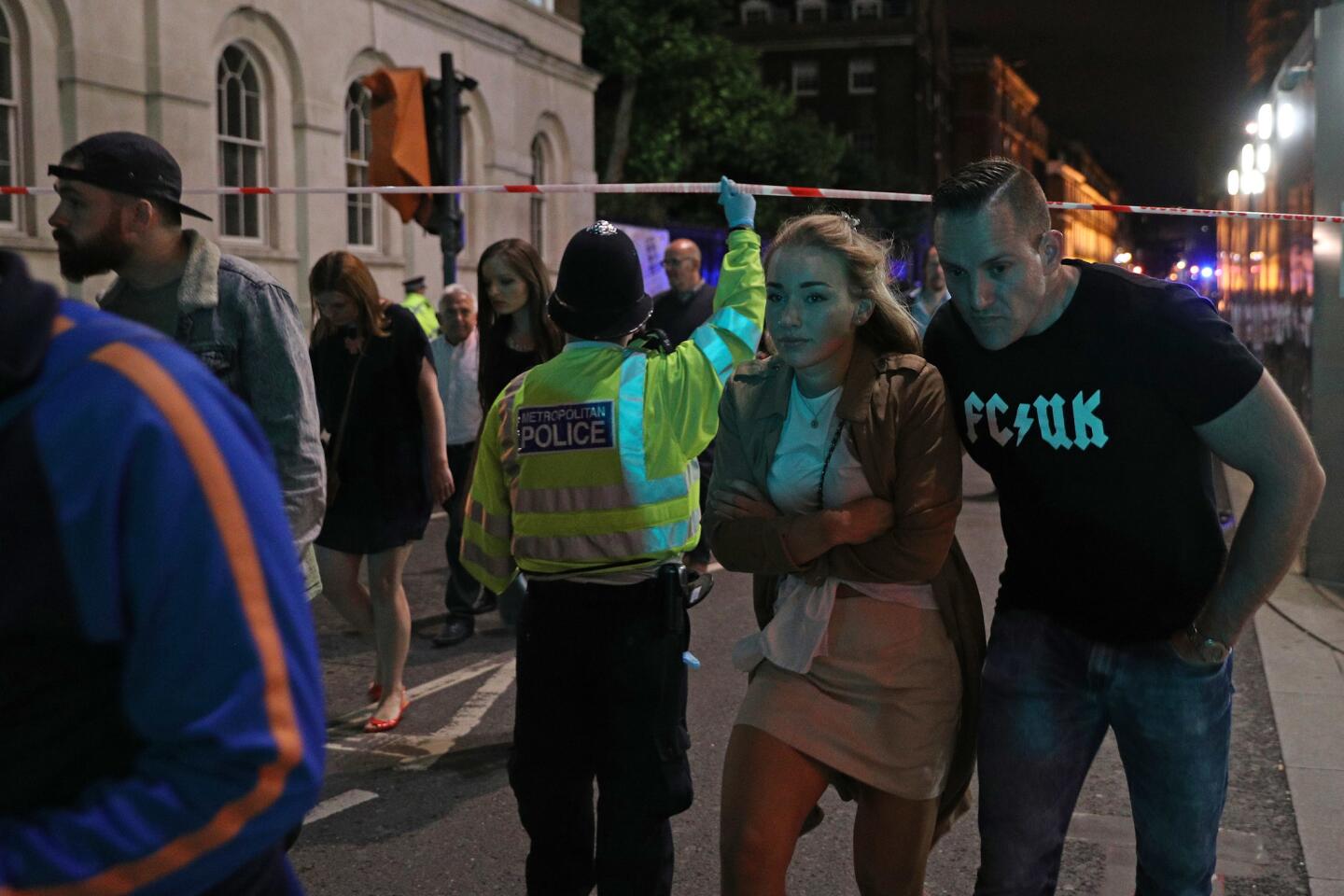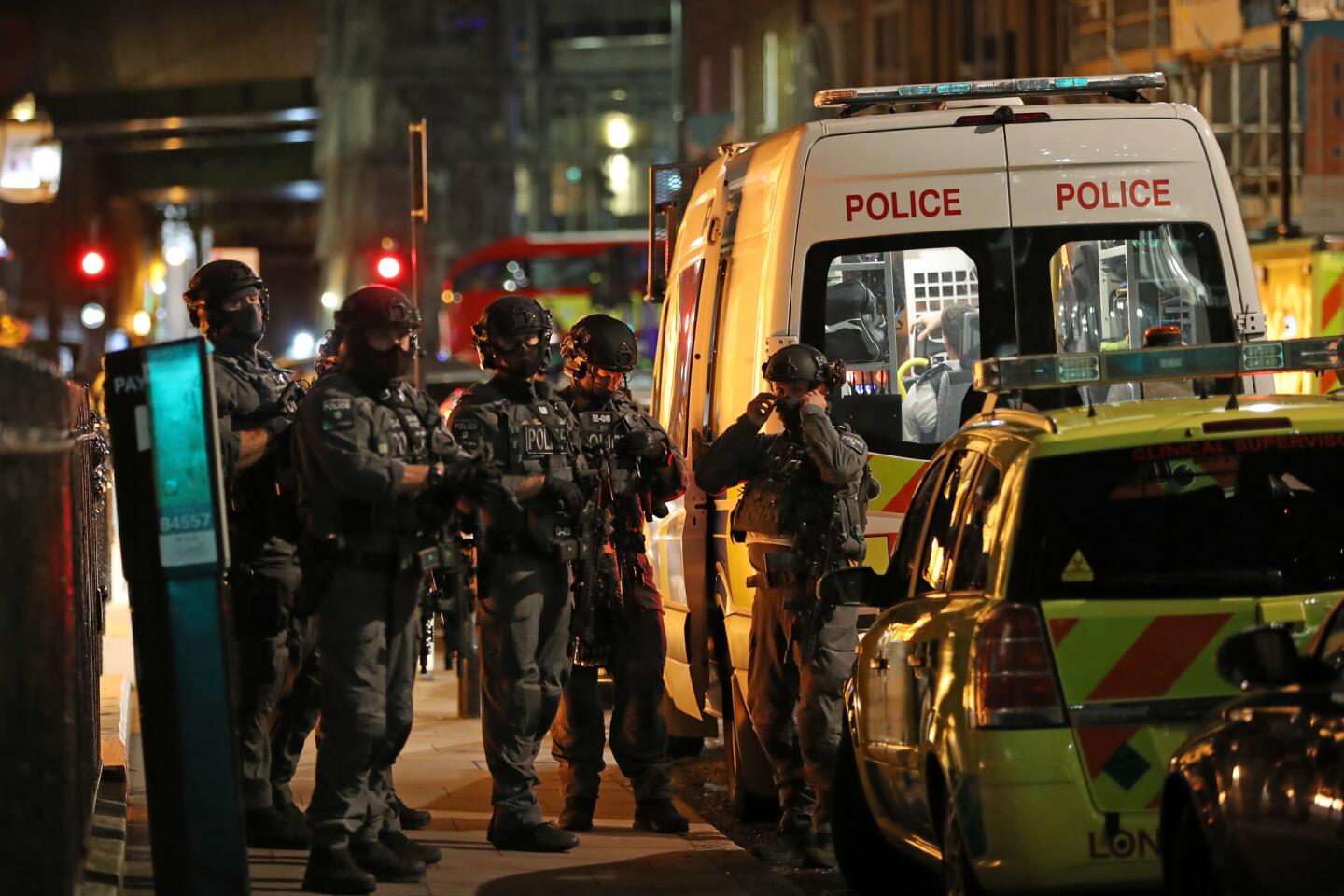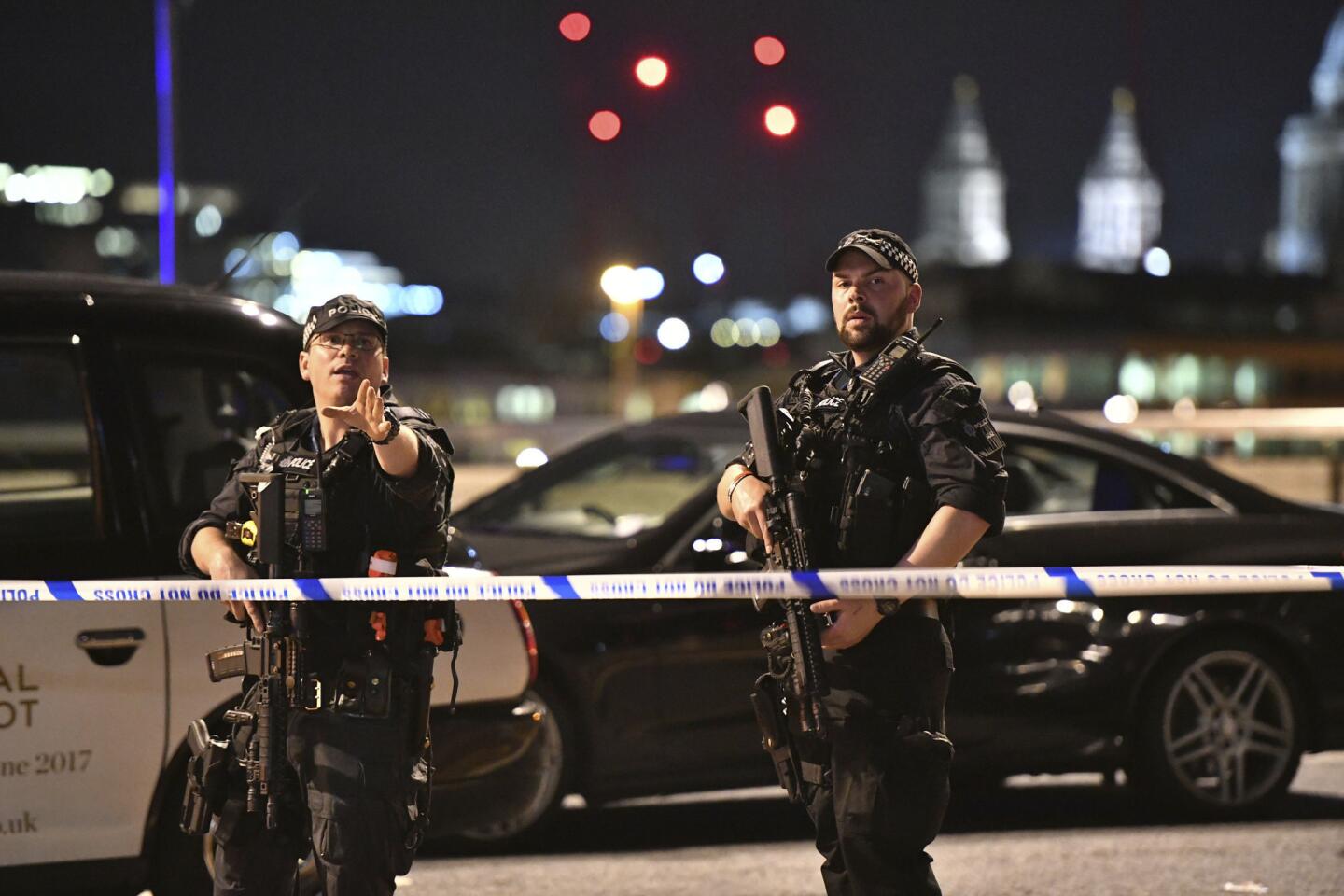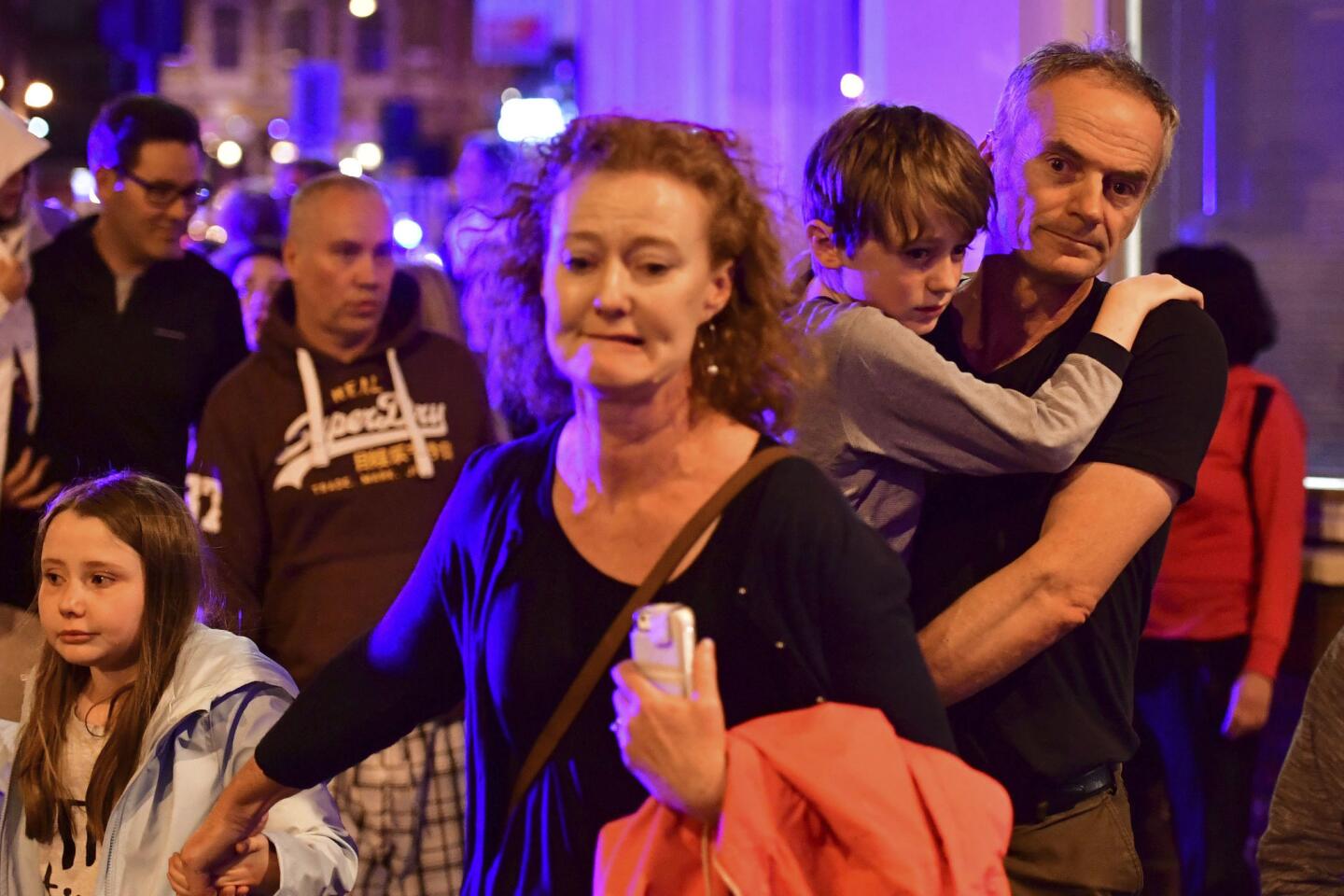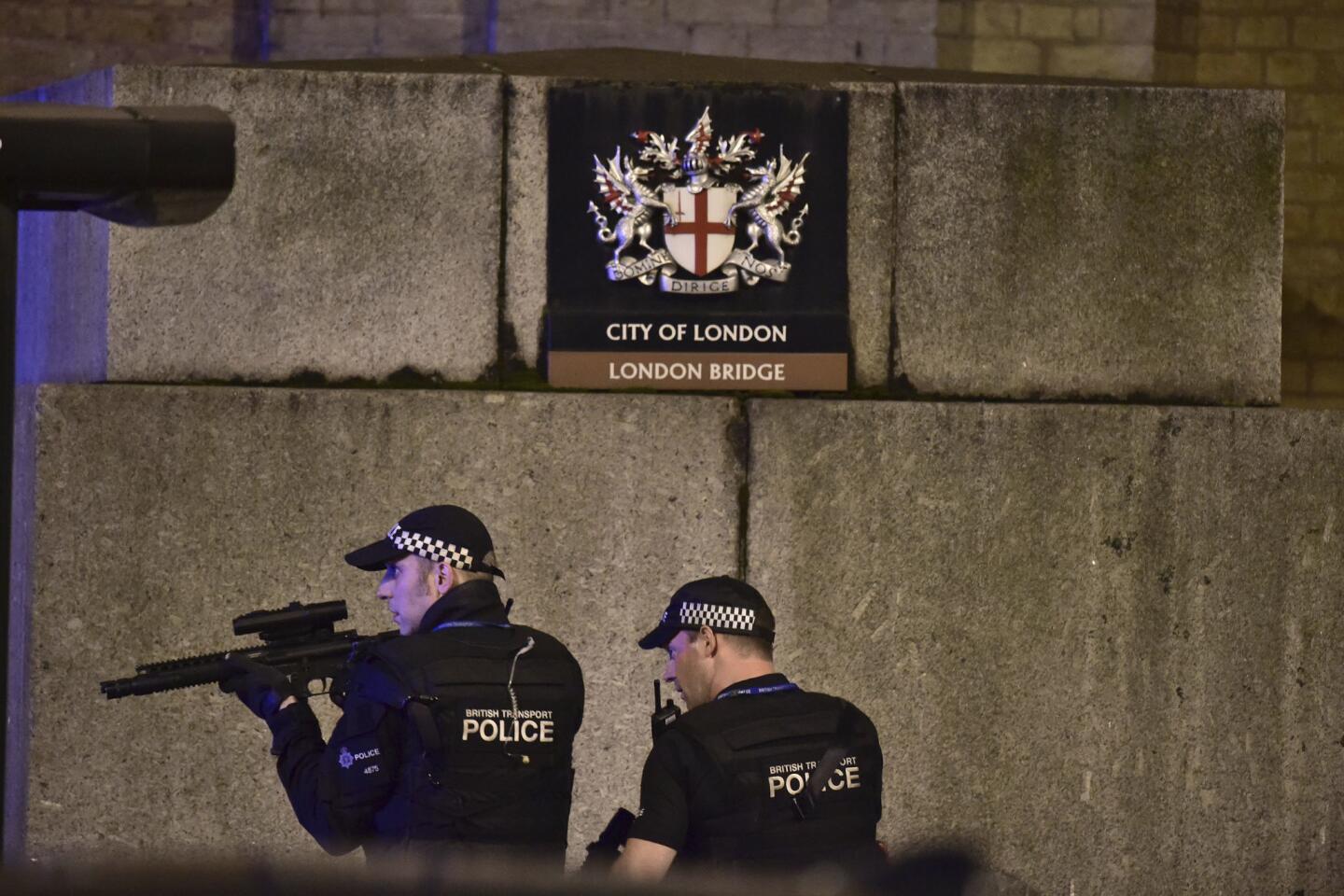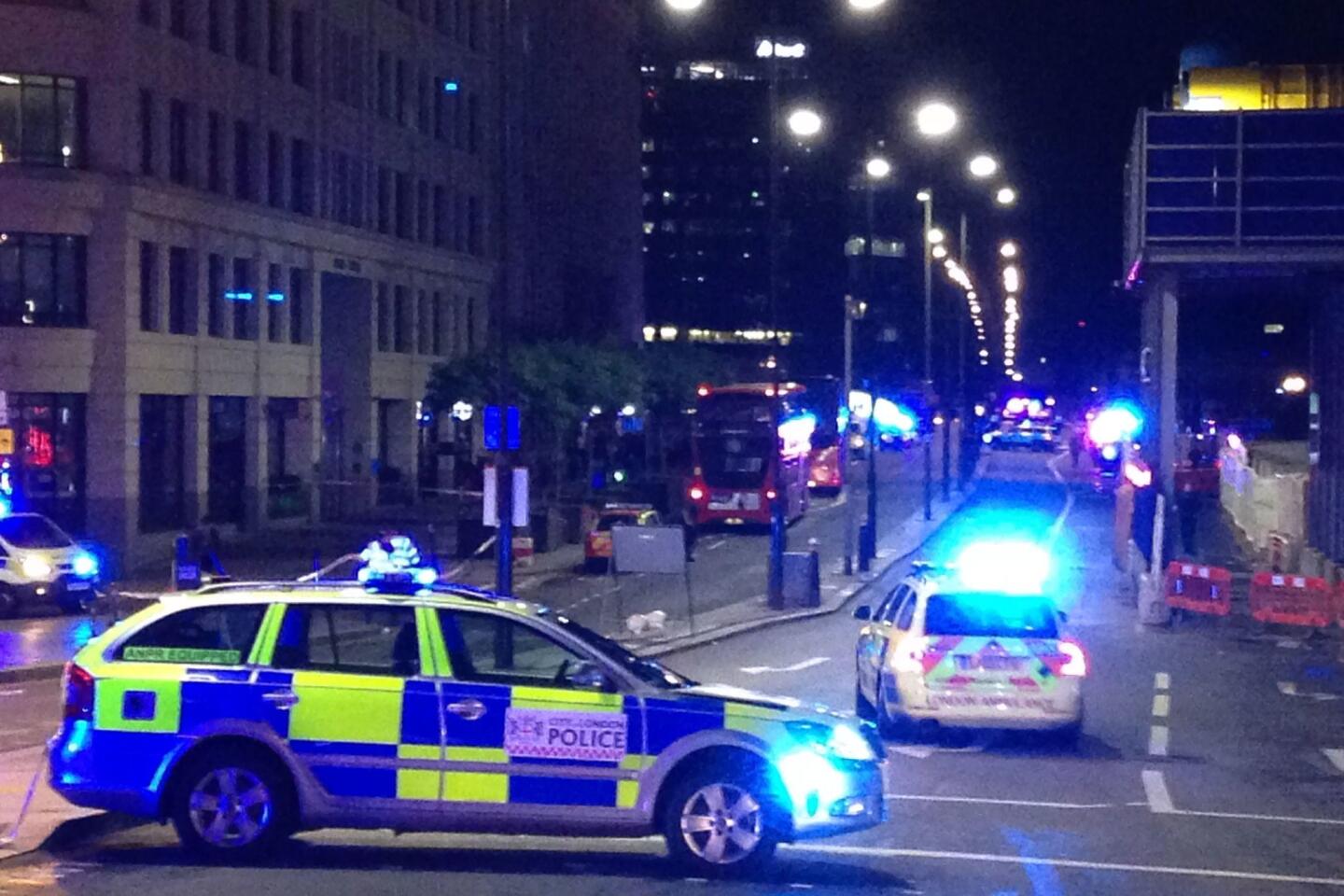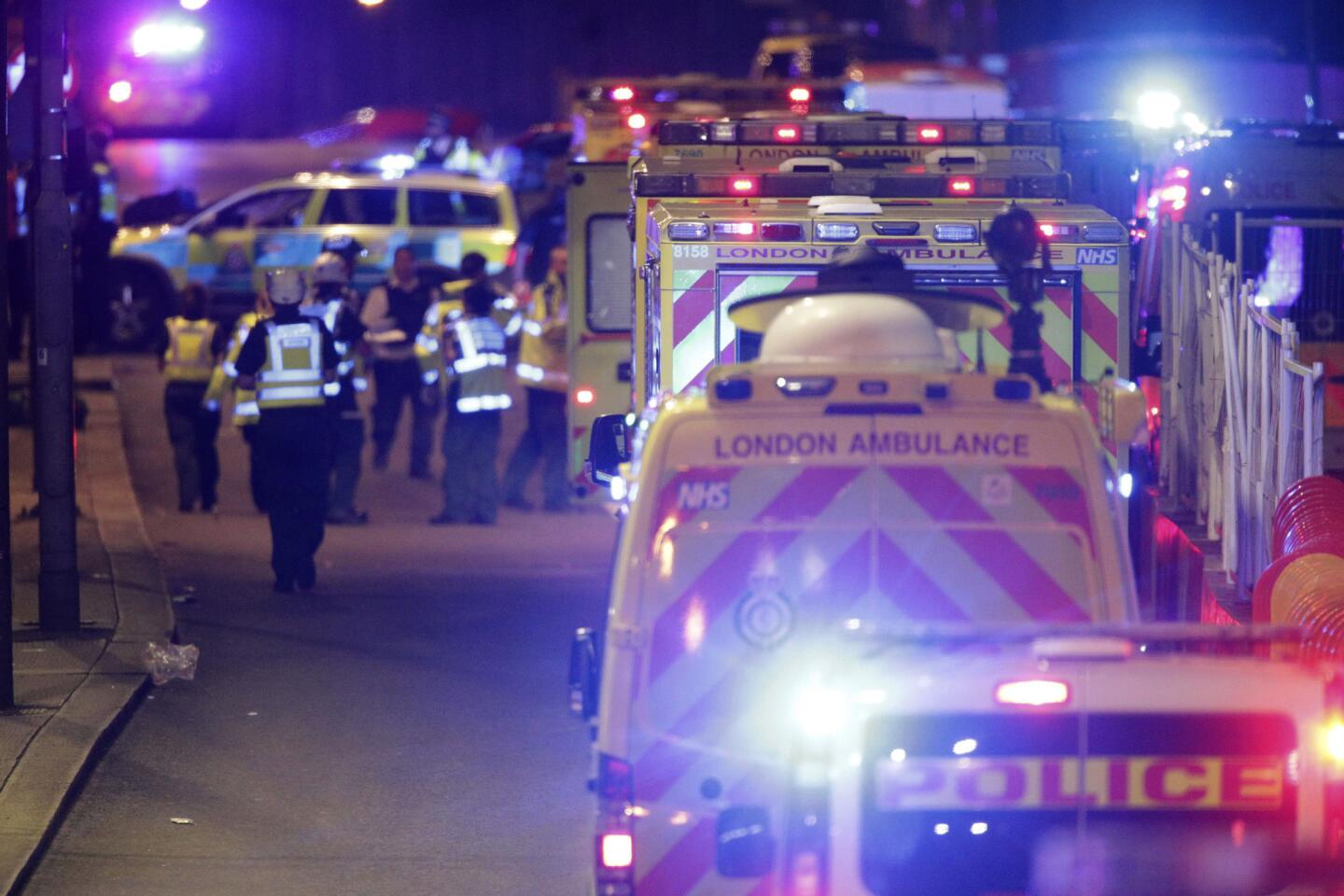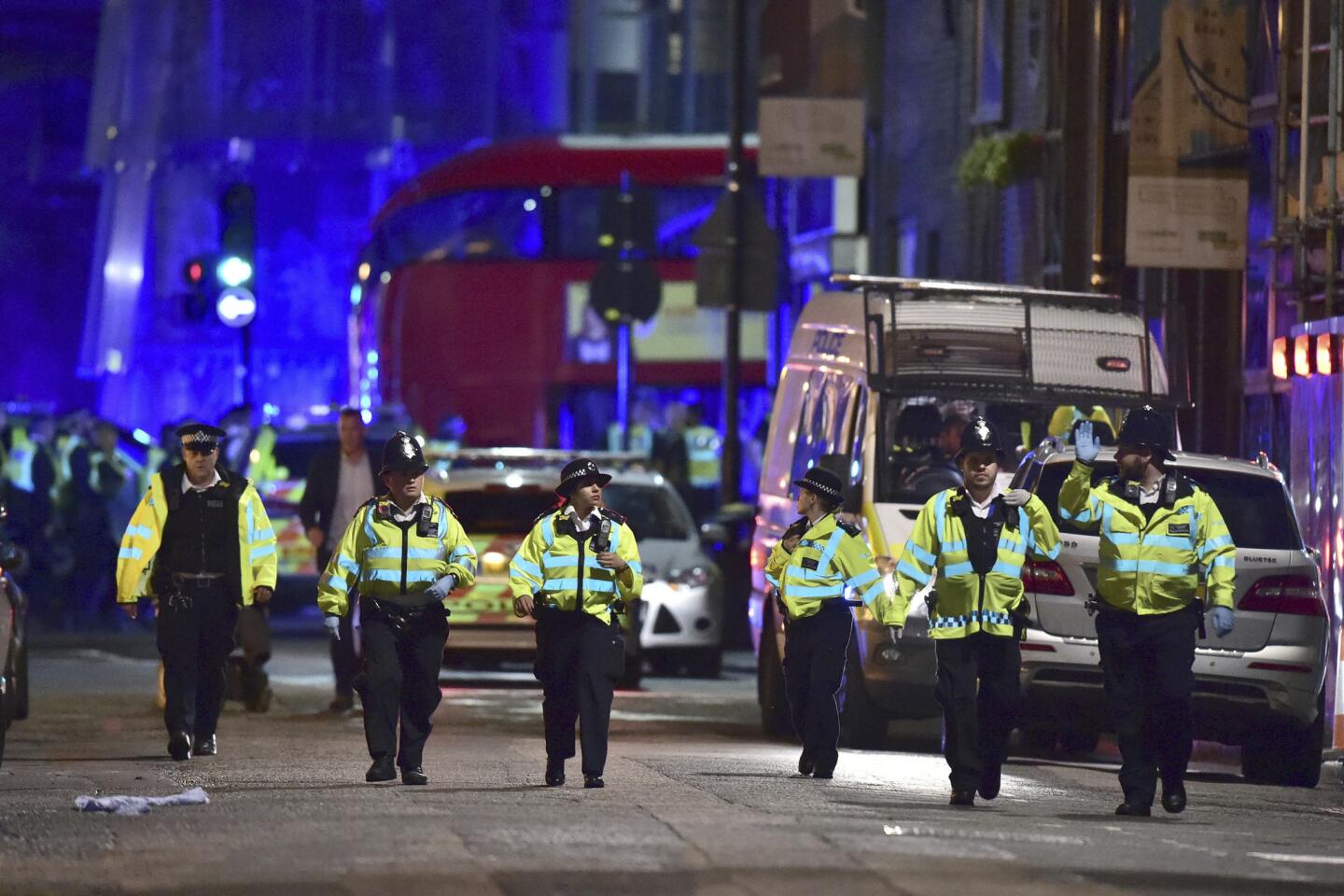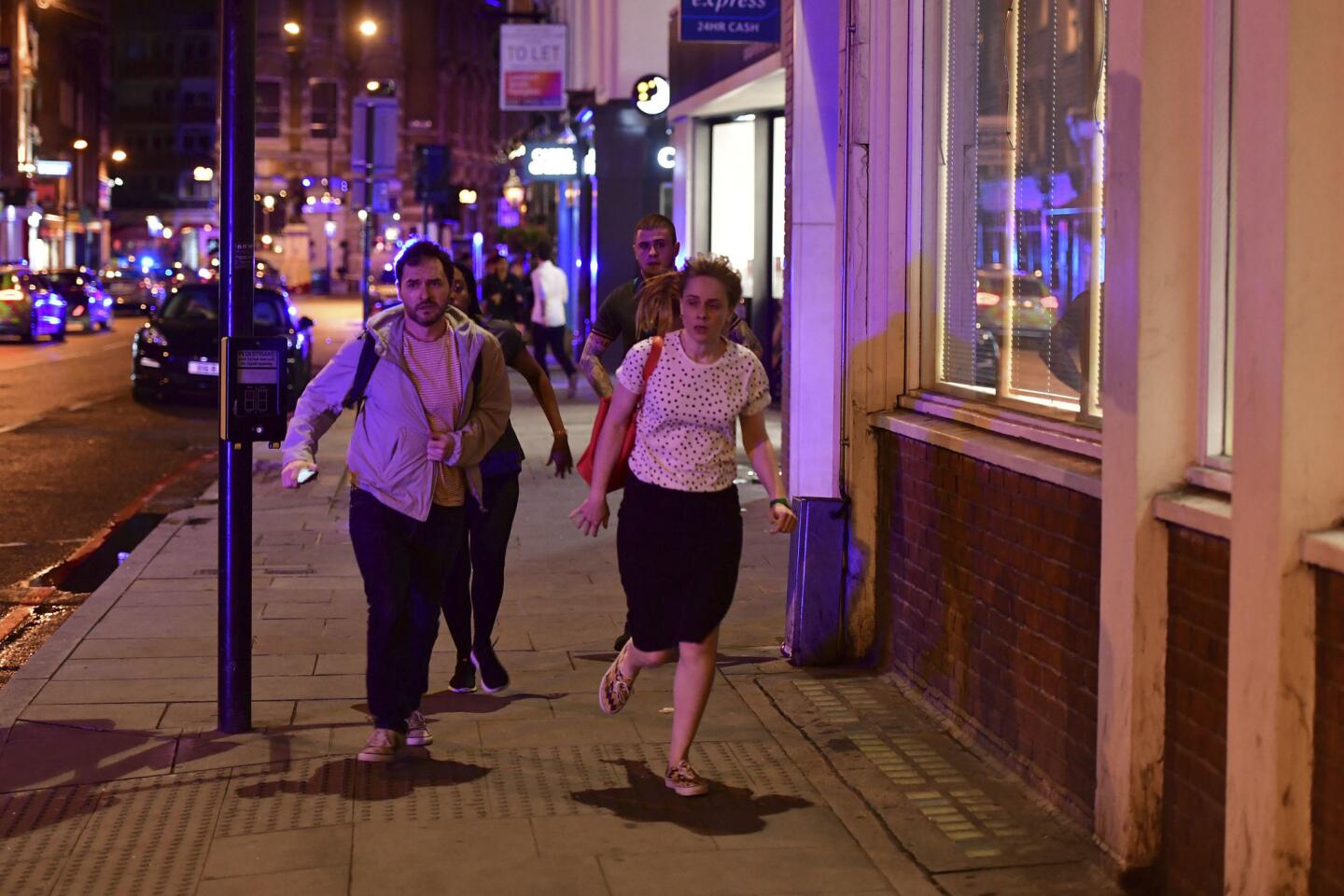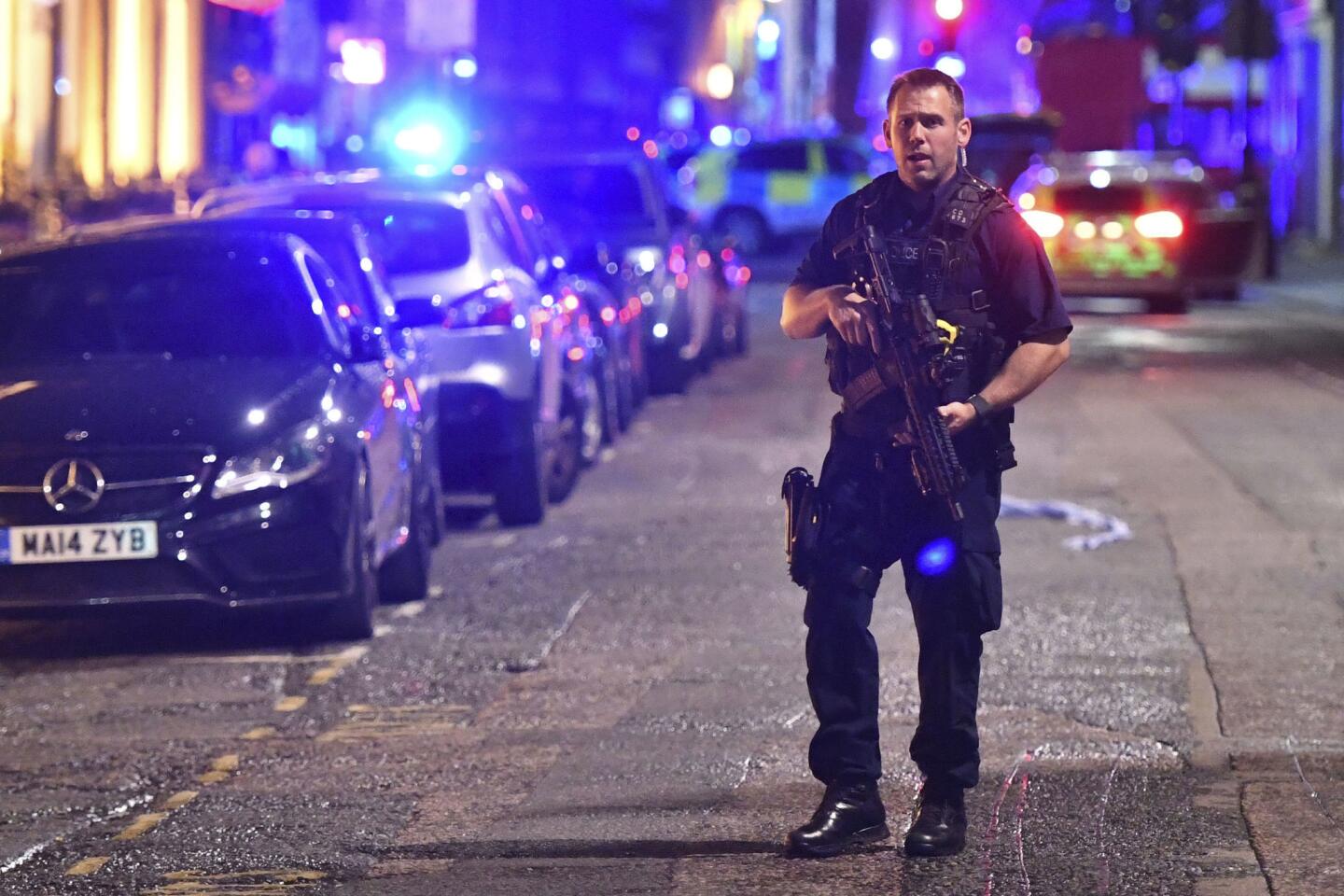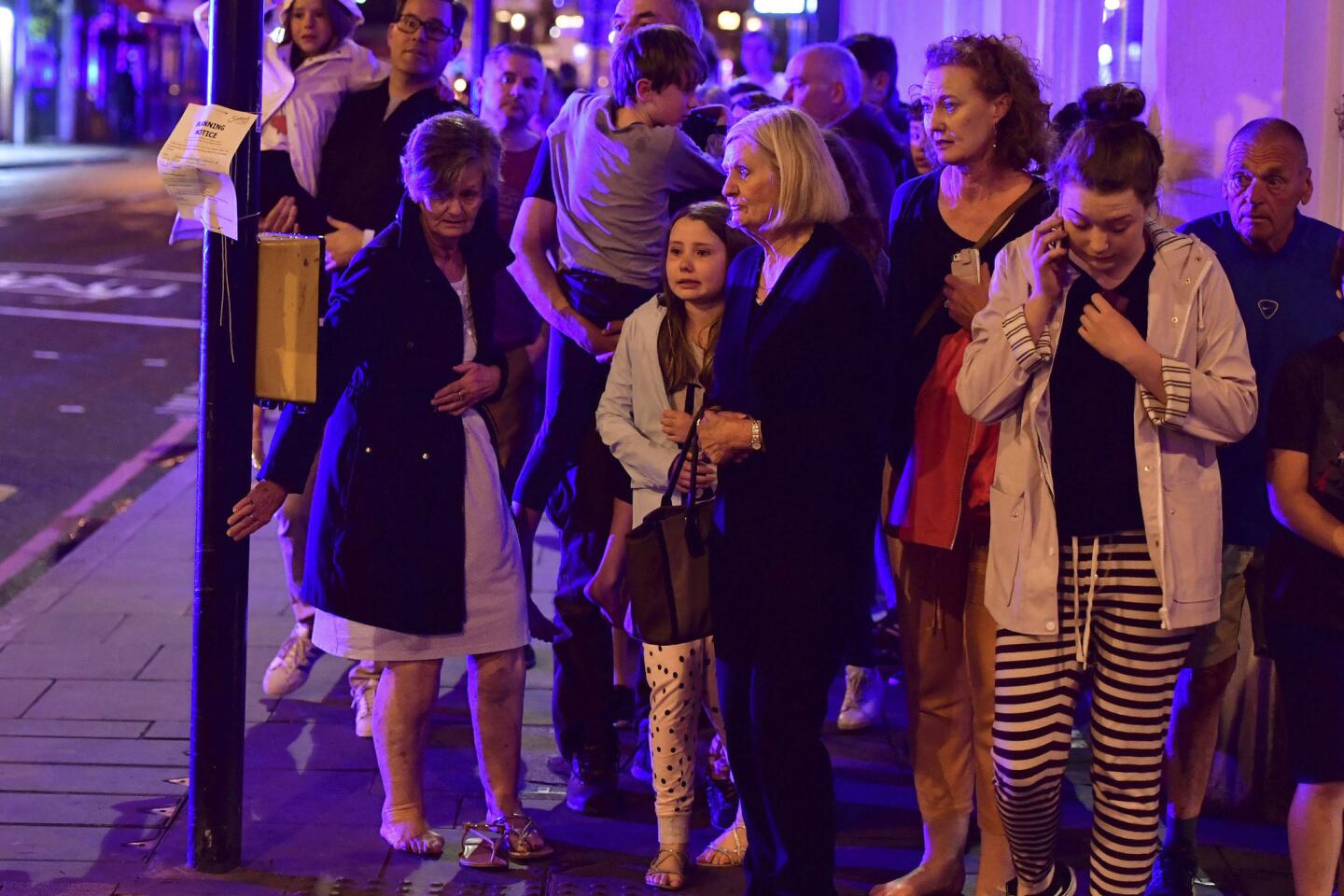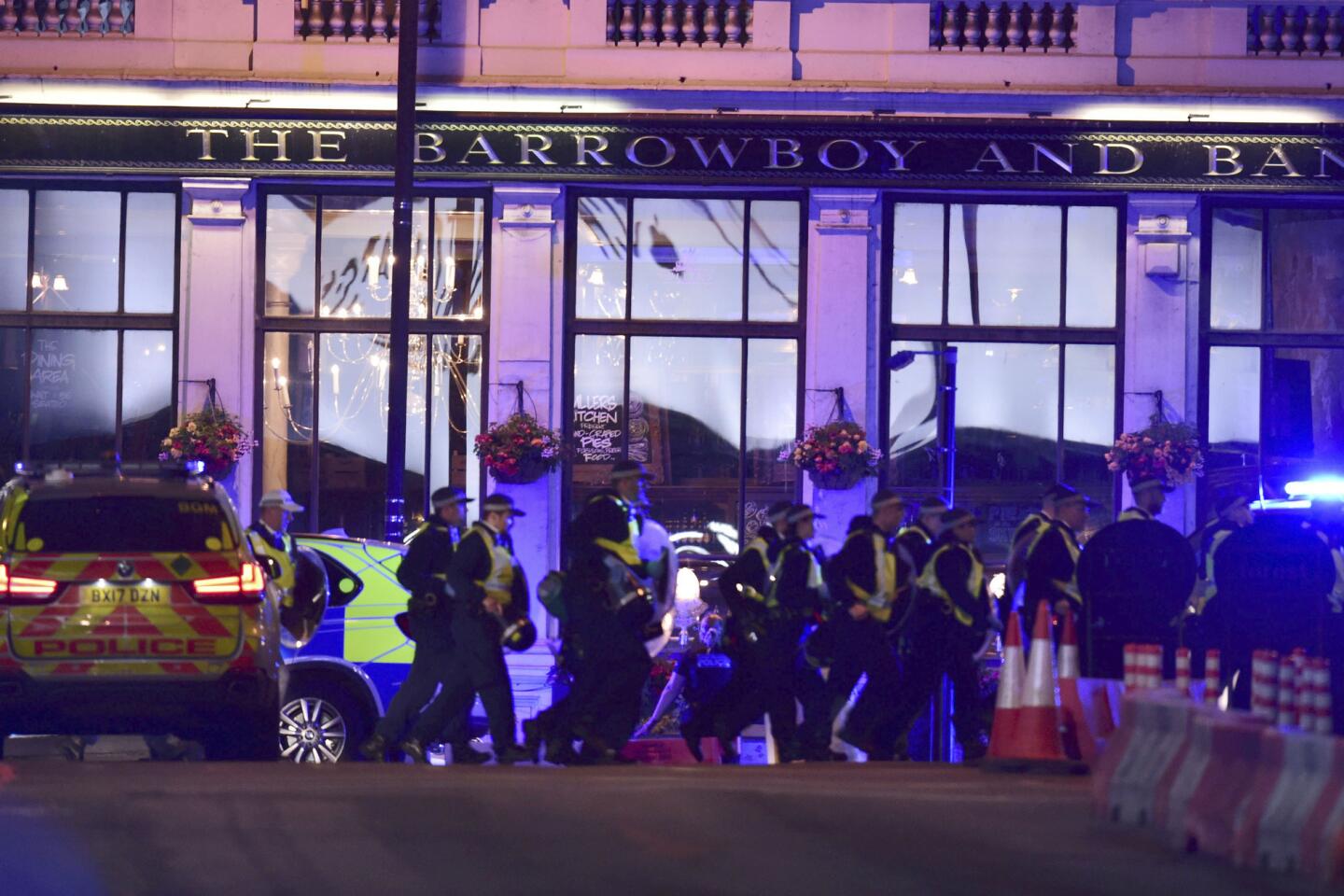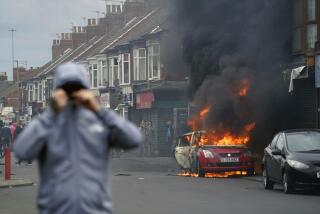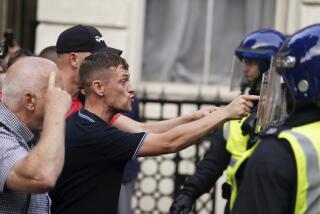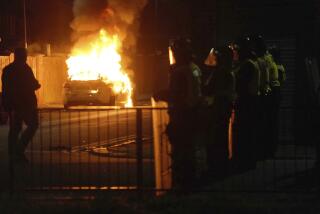With British election looming, security debate sharpens as two bridge attackers publicly named

Seven people were left dead in a June 3 attack carried out on London Bridge and in Borough Market.
- Share via
Reporting from London — Three days before a British general election in which security concerns have surged to the fore, Scotland Yard acknowledged Monday that the extremist Islamist views of one of three slain attackers who carried out a weekend terrorist strike had been known to investigators.
On the first weekday after the ramming-and-stabbing attack on and near London Bridge that killed seven people and injured dozens more, Londoners and visitors held a moment of silence amid a solemn vigil on the banks of the Thames — but they also resumed their workaday routines.
Commuters streamed on foot past police barricades and heaps of memorial bouquets. The bridge itself reopened, though some streets near the attack scene remained closed off.
Police for the first time publicly identified two of the three dead attackers — Pakistan-born Khuram Shazad Butt, 27, and Rachid Redouane, 30, who had said he was of Moroccan and Libyan extraction. News outlets scrambled to learn more about them, redoubling questions about the plotting that preceded the attack, and whether it should have come to authorities’ attention.
With an increasingly hard-fought general election set Thursday, fallout from Saturday’s attack took on ever-growing political significance.
Prime Minister Theresa May’s Conservative Party was still favored to win the largest share of seats in Parliament, but a poll published Monday by the organization YouGov suggested her party would fall 21 seats short of a 326-seat majority, while the rival Labor Party stood to increase its share.
For the last month, May has attempted to cast as the election’s centerpiece the terms of Britain’s exit from the European Union and her ability to provide stable leadership during fraught negotiations with the EU. Instead, she found herself forced to defend having presided over the cuts of thousands of police jobs during her six-year tenure as home secretary, the top security job.
Her chief rival, Jeremy Corbyn, said the prime minister should resign over the police cutbacks — a position he walked back somewhat by urging voters to let Thursday’s election be a referendum on that.
May, for her part, pointed to beefed-up security already in place, with more measures to come. “This was an attack on London and the United Kingdom, but it was also an attack on the free world,” she said Monday.
Max Abrahms, a political scientist at Northeastern University who has studied the impact of terrorist attacks on elections, said both Conservative and Labor leaders “are trying very hard to seem tough on terrorists,” adding: “There’s no question the attack in London will affect the election.”
Both candidates have also had to deal with another unexpected factor: President Trump. On Sunday and Monday, the president sharply criticized London’s Muslim mayor, Sadiq Khan, with whom he previously feuded.
Corbyn denounced the presidential tweets; May defended Khan but refrained from directly criticizing Trump, who is highly unpopular in Britain.
In the wake of the attack, Khan had told Londoners that they would be seeing more police on the streets in response to the heightened terrorist threat, but there was “no reason to be alarmed” by this display of armed vigilance.
“We are the safest global city in the world,” he added.
Trump jumped on Khan’s reassurances, tweeting Sunday: “At least 7 dead and 48 wounded in terror attack and Mayor of London says there is ‘no reason to be alarmed!’”
Trump followed up with another tweet on Monday, lashing out at reports that his characterization of Khan’s earlier statement had been misleading.
At the White House, spokeswoman Sarah Huckabee Sanders defended Trump’s running Twitter commentary, telling reporters: “I don’t see that the president is picking a fight” with Khan. She also insisted that Trump’s original description of Khan’s remarks had not been a mischaracterization.
Islamic State claimed responsibility for the London Bridge assault, but there were no immediate indications that the group had actually played any role in directing the assailants.
Authorities said homegrown “lone-wolf” extremists often drew on the ideology of groups like Islamic State without having any direct connection. Metropolitan Police Commissioner Cressida Dick told reporters that “the majority of the threat that we are facing does not appear to be directed from overseas.”
But there was a growing public perception that with this attack, as with previous strikes, danger signs might have gone unheeded. The perpetrators of a May 22 suicide bombing at a Manchester pop concert and a similar vehicle-and-knife attack on London’s Westminster Bridge two months earlier were both on the radar of authorities, but not regarded as active threats.
“Khuram Shazad Butt was known to the police and MI5,” said Scotland Yard, referring to the main British domestic intelligence service. “However, there was no intelligence to suggest that this attack was being planned” so monitoring of him was “prioritized accordingly” — that is, was not regarded as a matter of urgency.
However, Butt had drawn considerable notice in his East London neighborhood of Barking. Last year, he was featured in a documentary that aired on Britain’s Channel Four, titled “The Jihadis Next Door,” shown unfurling a black flag with white Arabic-language lettering at a public park.
Redouane, who also lived in Barking, was not known to the authorities, the police said, but efforts to pinpoint associates of all three attackers continued. Eleven people who had been picked up in police raids in Barking a day earlier were released Monday.
As the attack investigation moved forward, more details emerged about victims of the attack, in which the assailants used a rented van to ram pedestrians on the bridge, then jumped out with long knives and slashed bar and restaurant patrons in an adjoining nightlife district.
The sister of a missing 32-year-old British man named James McMullan told Sky News that police informed family members that his bank card had been found on one of the bodies. Melissa McMullan said the family believed it was him, although a coroner’s report was pending.
A 30-year-old Canadian woman had been named as one of those killed, and French officials said a French citizen was another of the fatalities.
As evening fell Monday, hundreds gathered on the banks of the Thames, not far from the scene of the assault, for a memorial vigil. A moment of silence was punctuated by a dog’s single bark.
“Our city is filled with great sorrow and anger tonight, but also great resolve and determination,” Khan told those assembled.
Debate in Britain grew, meanwhile, about the country’s long-standing practice of most police officers going unarmed. Police had shot dead the attackers, who were wearing fake suicide vests, eight minutes after the first distress call, wounding one civilian in the process. But one of the nearly 50 people injured was an officer who had confronted the attackers wielding only a baton.
Police said little about the additional arrests in the same general part of the city, other than to confirm that more raids had taken place early Monday. Like May, senior police officials described a recent spate of terrorist attacks as posing an “unprecedented” threat.
“We in this country have faced a terrorist threat throughout my life,” Dick told reporters Monday. “It changed and morphed, and we will change and adapt to what appears to be a new reality for us.”
Londoners, even while mourning, expressed continuing determination to avoid giving in to the kind of fear the attackers had sought to sow. A photograph of a man carefully balancing his mug of beer as he walked amid those fleeing the attack on Saturday night went viral online, inspiring thousands of memes and becoming for many a symbol of calm resistance in the face of terror.
“I think that the vast majority of the public are keen to promote a united view and a ‘stiff upper lip’ in a typically British manner, so in many ways the attacks have galvanized the British public,” said Matthew Flinders, a political scientist at Sheffield University.
ALSO
‘You won’t break us. You won’t break us, ever.’ A defiant London carries on after latest attack
Tiny Montenegro is about to become part of NATO. Here’s what you need to know
Special correspondent Kirschbaum reported from London and Times staff writer King from Washington. Special correspondent Christina Boyle in London contributed to this report.
UPDATES:
4:35 p.m.: This article has been updated throughout with details about election, suspects.
11:35 a.m.: This article has been updated with identities of suspects released, memorial gathering on Thames, other details.
This article was originally posted at 8:20 a.m.
More to Read
Sign up for Essential California
The most important California stories and recommendations in your inbox every morning.
You may occasionally receive promotional content from the Los Angeles Times.
